

Choose Your Test
Sat / act prep online guides and tips, best summary and analysis: the great gatsby, chapter 3.
Book Guides
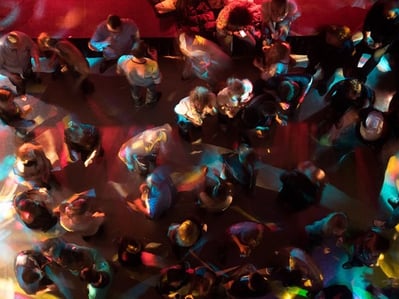
In Chapter 3 of The Great Gatsby , we finally—finally!—we get to see one of Gatsby's totally off the hook parties! And, it more than lives up to the hype as far as Nick is concerned. Even more excitingly, we finally get to meet the man, the myth, the legend himself—Gatsby, in the flesh! So why then does this reveal, which the novel has been building toward for 2.5 chapters, seem so anticlimactic?
Read on for our Great Gatsby Chapter 3 summary, covering the highs and lows of the Gatsby Saturday night experience.
Quick Note on Our Citations
Our citation format in this guide is (chapter.paragraph). We're using this system since there are many editions of Gatsby, so using page numbers would only work for students with our copy of the book.
To find a quotation we cite via chapter and paragraph in your book, you can either eyeball it (Paragraph 1-50: beginning of chapter; 50-100: middle of chapter; 100-on: end of chapter), or use the search function if you're using an online or eReader version of the text.
The Great Gatsby : Chapter 3 Summary
Nick describes watching endless parties going on in Gatsby's house every weekend. Guests party day and night and then on Mondays servants clean up the mess.
Everything is about excess and a sense of overkill. Each weekend, guests are ferried back and forth to Manhattan by Rolls-Royce, crates of oranges and lemons are juiced, an army of caterers sets up tents and lighting, food is piled high, the bar is overwhelmingly stocked, and there is a huge band playing. It's an even bigger deal than it sounds because all this is happening during the Prohibition, when alcohol was supposedly unavailable.
The first night Nick goes to Gatsby's for a party, he's one of a very few actually invited guests. Everyone else just crashes. At the party, Nick is ill at ease. He knows no one. There's a surprising number of English people at the party, who seem desperate to get their hands on American money.
No one knows where Gatsby himself is. Nick hangs out near the bar until he sees Jordan Baker. Nick and Jordan chat with other party people. A young woman tells them that at another one of these parties, when she ripped her dress by accident, Gatsby sent her a very expensive replacement. They gossip about what this odd behavior means. One rumor has it that Gatsby killed someone, another that he was a German spy.
Food is served, which Nick and Jordan eat at a table full of people from East Egg, who look at this insane party with condescension.
They decide to find Gatsby since Nick has never actually met him. In his mansion, they end up in the library, which has ornately carved bookshelves and reams of books. A man with owl-eyed spectacles enthuses about the fact that all these books are actually real—and about the fact that Gatsby hasn't cut their pages (meaning he's never read any of them).
Back out in the garden, guests are now dancing, and several famous opera singers perform. Some partygoers also perform relatively risqué acts.
Nick and Jordan sit down at a table with a man who recognizes Nick from the army. After talking about the places in France where they were stationed during the war, the man reveals that he is Gatsby. Gatsby flashes the world's greatest and most seductive (not sexually, just extremely appealingly) smile at Nick and leaves to take a phone call from Chicago.
Nick demands more information about Gatsby from Jordan, who said that Gatsby calls himself an Oxford man (meaning, he went to the University of Oxford). Jordan says that she doesn't believe this, and Nick lumps the info in with all the other rumors he's heard (that Gatsby had killed a man, that he was Kaiser Wilhelm's nephew, that he was a German spy, etc.).
The orchestra strikes up the latest number one hit. Nick notices Gatsby looking over his guests with approval. Gatsby neither drinks, nor dances, nor flirts with anyone at the party.
When Jordan is suddenly and mysteriously asked to speak to Gatsby alone, Nick watches a drunk guest weep and then pass out. He notices fights breaking out between other couples. Even the group of people from East Egg are no longer on their best behavior.
Despite the fact that the party is clearly over, no one wants to leave. As Nick is getting his hat to leave, Gatsby and Jordan come out of the library. Jordan tells Nick that Gatsby has just told her something amazing—but she can't reveal what. She gives Nick her number and leaves.
Nick finds Gatsby, apologizes for not seeking him out earlier. Gatsby invites him to go out on his hydroplane the next day, and Nick leaves as Gatsby is summoned to a phone call from Philadelphia.
He waves goodbye from the steps of his mansion, looking lonely.
Outside, the man with the owl-eyed spectacles from the library has crashed his car. An even drunker man emerges from the driver's seat of the wreck and is comically but also horrifyingly confused about what has happened.
Suddenly, the narrative is interrupted by present-day Nick. He thinks that what he's been writing is probably giving us the wrong idea. He wasn't fixated on Gatsby during that summer—this fixation has only happened since then. That summer, he spent most of his time working at his second or third-tier bond trading company, Probity Trust, and had a relationship with a coworker. He started to really like the crowded and anonymous feel of Manhattan, but also felt lonely.
In the middle of the summer, Nick reconnects with Jordan Baker and they start dating. He almost falls in love with her and discovers that under her veneer of boredom, Jordan is an incorrigible liar. She gets away with it because in the rigid upper-class code of behavior, calling a woman out as a liar would be improper. Nick suddenly remembers the story he had read about her golfing career: Jordan was accused of cheating by moving her ball to a better lie, but the witnesses later recanted and nothing was proven.
When Nick complains that Jordan is a terrible driver, she answers that she relies on the other people on the road to be careful instead of her. Nick wants to take their relationship further, but reigns himself in because he hasn't fully broken off the non-engagement back home that Tom and Daisy had asked him about earlier.
He claims that he is one of the few honest people that he's ever met.
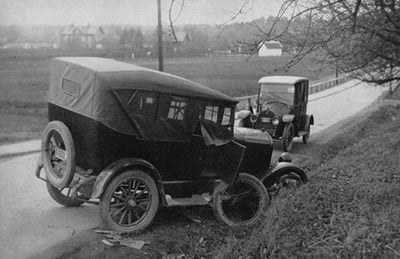
Key Chapter 3 Quotes
I believe that on the first night I went to Gatsby's house I was one of the few guests who had actually been invited. People were not invited—they went there. They got into automobiles which bore them out to Long Island and somehow they ended up at Gatsby's door. Once there they were introduced by somebody who knew Gatsby and after that they conducted themselves according to the rules of behavior associated with amusement parks. Sometimes they came and went without having met Gatsby at all, came for the party with a simplicity of heart that was its own ticket of admission. (3.7)
Gatsby's parties are the epitome of anonymous, meaningless excess—so much so that people treat his house as a kind of public, or at least commercial, space rather than a private home. This is connected to the vulgarity of new money —you can't imagine Tom and Daisy throwing a party like this. Or Nick for that matter. The random and meaningless indulgence of his parties further highlights Gatsby's isolation from true friends . As Jordan says later, large parties are great because they provide privacy/intimacy, so Gatsby stands alone in a sea of strangers having their own intimate moments.
A stout, middle-aged man with enormous owl-eyed spectacles was sitting somewhat drunk on the edge of a great table, staring with unsteady concentration at the shelves of books. …He waved his hand toward the book-shelves.
"About that. As a matter of fact you needn't bother to ascertain. I ascertained. They're real…."Absolutely real—have pages and everything. I thought they'd be a nice durable cardboard. Matter of fact, they're absolutely real. Pages and—Here! Lemme show you."
Taking our skepticism for granted, he rushed to the bookcases and returned with Volume One of the "Stoddard Lectures."
"See!" he cried triumphantly. "It's a bona fide piece of printed matter. It fooled me. This fella's a regular Belasco. It's a triumph. What thoroughness! What realism! Knew when to stop too—didn't cut the pages. But what do you want? What do you expect?" (3.41-50)
Belasco was a renowned theatrical producer, so comparing Gatsby to him here is a way of describing the library as a stage set for a play—in other words, as a magnificent and convincing fake. This sea of unread books is either yet more tremendous waste of resources, or a kind of miniature example of the fact that a person's core identity remains the same no matter how many layers of disguise are placed on top.
Gatsby has the money to buy these books, but he lacks the interest, depth, time, or ambition to read and understand them , which is similar to how he regards his quest to get Daisy.
He smiled understandingly—much more than understandingly. It was one of those rare smiles with a quality of eternal reassurance in it, that you may come across four or five times in life. It faced—or seemed to face—the whole external world for an instant, and then concentrated on you with an irresistible prejudice in your favor. It understood you just so far as you wanted to be understood, believed in you as you would like to believe in yourself and assured you that it had precisely the impression of you that, at your best, you hoped to convey. Precisely at that point it vanished—and I was looking at an elegant young rough-neck, a year or two over thirty, whose elaborate formality of speech just missed being absurd. Some time before he introduced himself I'd got a strong impression that he was picking his words with care. (3.76)
Lots of Gatsby's appeal lies in his ability to instantly connect with the person he is speaking to , to make that person feel important and valued. This is probably what makes him a great front man for Wolfsheim's bootlegging enterprise, and connects him with Daisy, who also has a preternaturally appealing quality— her voice .
Dishonesty in a woman is a thing you never blame deeply—I was casually sorry, and then I forgot. (3.161)
The offhanded misogyny of this remark that Nick makes about Jordan is telling in a novel where women are generally treated as objects at worst or lesser beings at best. Even our narrator, ostensibly a tolerant and nonjudgmental observer, here reveals a core of patriarchal assumptions that run deep.
Every one suspects himself of at least one of the cardinal virtues, and this is mine: I am one of the few honest people that I have ever known. (3.171)
There are layers of meaning and humor here.
First, the humor:
While in Christian tradition there is the concept of cardinal virtues, honesty is not one of them. So here, since the phrase "cardinal sin" is the more familiar concept, there is a small joke that Nick's honesty is actually a negative quality, a burden.
Nick is telling us about his scrupulous honesty a second after he's revealed that he's been writing love letters to a girl back home every week despite wanting to end their relationship, and despite dating a girl at his office, and then dating Jordan in the meantime. So honesty to Nick doesn't really mean what it might to most people.
Second, the meaning:
What does it mean to have our narrator tell us in one breath that he is honest to a fault, and that he doesn't think that most other people are honest? This sounds like a humblebrag kind of observation. But also, we need to question Nick's ability to understand/empathize with other people if he thinks he is on such a removed plane of existence from them. And of course since he just showed us that he is not actually all that honest only a paragraph ago, we need to realize that his narration is probably not completely factual/accurate/truthful. Plus, this observation comes at the end of the third chapter, after we've met all the major players finally—so it's like the board has been set, and now we finallt have enough information to distrust our narrator.
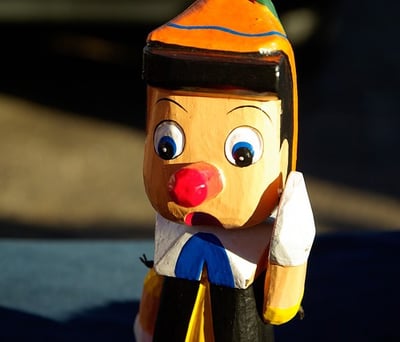
Chapter 3 Analysis
This is a good time to step back from the plot and the text to see how this chapter connects to the book's bigger picture.
Themes and Symbols
Money and Materialism . Nothing says Roaring 20s excess like the insane party Gatsby throws. In Nick's description, it's an explosion of decorations, food, alcohol, music, and anonymous guests who don't even know the host. This, combined with the over-the-top level of entertainment he provides is jarring even for the wealthy West Egg crowd, and speaks to the materialism and conspicuous display of consumption the novel deplores . It's interesting that Gatsby orchestrates but doesn't participate in his extravaganzas—even the guests become display pieces of his wealth as he stands above them and watches.
Society and Class. At the same time, we get a sense of the West Egg/East Egg divide as Jordan Baker's East Egg friends stick together and do not mix with the rest of the guests, regarding them as vulgar and beneath them.
Mutability of Identity. The beautifully decorated library filled with books that have never been read speaks to Gatsby's theatrical approach to crafting his new identity . He can create the trapping and appearance of an Oxford man, but doesn't have the background or inner resources to actually be one. At the same time, the mystery around Gatsby deepens. We get new theories about his background—he killed a man, he was a German spy during the war, he went to Oxford. And we also see him doing all sorts of inexplicable things—taking business phone calls from Chicago and Philadelphia, telling Jordan something secret and fascinating, not actually partying at his own party. At the same time, we get the first glimpse into the "great" Gatsby—that dazzling smile that captivates Nick with its empathy and connection.
Motifs: Sports. We get our second mention of organized sports in Nick's brief description of a golf cheating scandal that Jordan was involved with. He chalks it up to her general tendency to lie. Golf is the perfect sport for Jordan to play. It is a game that is highly ordered by social rules and customs, so it fits neatly into her lying MO—she relies on the idea that accusing a woman of cheating is seen as ungentlemanly.
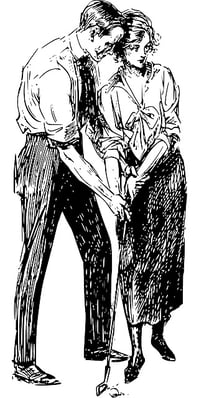
Crucial Character Beats
Nick and Jordan meet the man with the owl-eyed spectacles (a mysterious and yet somehow important minor figure—later, he will be the only person who will show up to Gatsby's funeral) who shows them Gatsby's library of unread books. Like the rest of Gatsby's life, this library is just window-dressing.
We finally meet Gatsby! The title character of the book doesn't appear until Chapter 3—and by this point, he's no longer just a man. He's a myth and a legend. His actual appearance doesn't dispel the mystery, but deepens it: why is he getting business phone calls on a weekend? How does a man as young as he is have this kind of money? Why doesn't he participate in his own party? Why doesn't Nick describe what he looks like (the way he does every other person in the book)?
The owl-spectacles man and his even drunker companion crash a car that they have no idea how to drive. This alarming combination of driving and alcohol is here played for laughs, but is also an important bit of foreshadowing. The foreshadowing is laid on even thicker when Jordan says that as a careless driver, she relies on other people to watch out for her, and Nick points out the danger of two careless people meeting on the road.
Present-day Nick interrupts his story to let us know that the things that he is describing as significant now didn't appear so at the time. This both shows how much his fascination with Gatsby has grown over time, and makes the novel's heavy use of foreshadowing all the more significant.
Nick and Jordan start dating, and he realizes that she is a compulsive liar.
What's Next?
Learn more about what makes Jordan tick in preparation for the next chapter, when she will take over narrator duties for a while.
Think about how Gatsby's parties have been portrayed in the movie adaptations of this novel , since these are the scenes that have become iconic in the way Gatsby has seeped into the larger culture.
Move on to the summary of Chapter 4 , or revisit the summary of Chapter 2 .
Want to improve your SAT score by 160 points or your ACT score by 4 points? We've written a guide for each test about the top 5 strategies you must be using to have a shot at improving your score. Download it for free now:

Anna scored in the 99th percentile on her SATs in high school, and went on to major in English at Princeton and to get her doctorate in English Literature at Columbia. She is passionate about improving student access to higher education.
Student and Parent Forum
Our new student and parent forum, at ExpertHub.PrepScholar.com , allow you to interact with your peers and the PrepScholar staff. See how other students and parents are navigating high school, college, and the college admissions process. Ask questions; get answers.

Ask a Question Below
Have any questions about this article or other topics? Ask below and we'll reply!
Improve With Our Famous Guides
- For All Students
The 5 Strategies You Must Be Using to Improve 160+ SAT Points
How to Get a Perfect 1600, by a Perfect Scorer
Series: How to Get 800 on Each SAT Section:
Score 800 on SAT Math
Score 800 on SAT Reading
Score 800 on SAT Writing
Series: How to Get to 600 on Each SAT Section:
Score 600 on SAT Math
Score 600 on SAT Reading
Score 600 on SAT Writing
Free Complete Official SAT Practice Tests
What SAT Target Score Should You Be Aiming For?
15 Strategies to Improve Your SAT Essay
The 5 Strategies You Must Be Using to Improve 4+ ACT Points
How to Get a Perfect 36 ACT, by a Perfect Scorer
Series: How to Get 36 on Each ACT Section:
36 on ACT English
36 on ACT Math
36 on ACT Reading
36 on ACT Science
Series: How to Get to 24 on Each ACT Section:
24 on ACT English
24 on ACT Math
24 on ACT Reading
24 on ACT Science
What ACT target score should you be aiming for?
ACT Vocabulary You Must Know
ACT Writing: 15 Tips to Raise Your Essay Score
How to Get Into Harvard and the Ivy League
How to Get a Perfect 4.0 GPA
How to Write an Amazing College Essay
What Exactly Are Colleges Looking For?
Is the ACT easier than the SAT? A Comprehensive Guide
Should you retake your SAT or ACT?
When should you take the SAT or ACT?
Stay Informed
Get the latest articles and test prep tips!
Looking for Graduate School Test Prep?
Check out our top-rated graduate blogs here:
GRE Online Prep Blog
GMAT Online Prep Blog
TOEFL Online Prep Blog
Holly R. "I am absolutely overjoyed and cannot thank you enough for helping me!”
The Great Gatsby
Chapter 3 summary & analysis, f. scott fitzgerald.
The Great Gatsby
By f. scott fitzgerald, the great gatsby summary and analysis of chapter 3, chapter three.
This chapter begins with Nick's description of Gatsby's Saturday night parties: they have become legendary in New York for their opulence and hedonism. These parties are obscenely lavish. The guests marvel at Gatsby's Rolls-Royce, his enormous swimming pool, the live musicians he engages weekly, the sumptuous food that he provides for hundreds of people, and, perhaps most importantly, the unlimited liquor he generously supplies. Nick is eventually invited to one of these parties, but not by Gatsby himself; instead, Gatsby's chauffeur brings an invitation to Nick's door.
Gatsby's mansion is packed with revelers when Nick arrives. Very few of them seem to be invited guests, and even fewer have met Gatsby face to face. It is a very mixed crowd: East Eggers rub elbows with West Eggers, and people from New York high society meet those from "the wrong side of the tracks." Nick runs into Jordan Baker , who is even more casually bitter than usual because she has recently lost a golf tournament. All around them, people gossip about their mysterious host. They speculate that he once killed a man in cold blood or that he was a spy for Germany during World War I.
Jordan and Nick go looking for Gatsby in his mansion; instead, they find a grotesque little man in enormous eyeglasses (Nick calls him " Owl Eyes ") skimming through the books in Gatsby's library. Both Owl Eyes and Jordan initially think that the books are false, designed only to give the appearance of a library; both are surprised to find that the books are real.
Outside, in the garden, Nick strikes up a conversation with a handsome, youthful man who looks familiar to him; it turns out that they served in the same division during the war. This man is the mysterious Gatsby. Gatsby has an affected English accent and a highly formal way of speaking. He stands aloof from his guests, watching the party rather than taking part in it. Gatsby leaves to take a phone call; later, he sends his butler to ask Jordan Baker if he may speak with her privately. When she finishes talking to Gatsby, she tells Nick that she has heard some "remarkable" news.
At about two in the morning, Nick decides to walk home; on the way, he sees Owl Eyes, who has crashed his car into a ditch. Owl Eyes loudly proclaims that he is finished with the whole business; it is not clear (either to Nick or to the reader) what, if anything, he means by this.
Nick informs the reader that he did not merely attend parties during the summer of 1922; he was also working in New York, a city which he simultaneously loves and hates. At Tom and Daisy's urging, he becomes romantically involved with Jordan Baker. Though he finds her essential dishonesty somewhat off-putting, he is attracted to her despite himself.
In this chapter, Jay Gatsby remains fundamentally a mystery. Few of the partygoers have met their host, and Gatsby stands aloof from his own celebration. He does not drink, he does not dance, he remains an observer. The man himself stands in stark contrast to the sinister gossip Nick has heard about him. Gatsby is young and handsome, with a beautiful smile that seems to radiate hope and optimism. Nick falls instantly in love with Gatsby's smile, remarking that it has "a quality of eternal reassurance in it." Gatsby's innate hopefulness is contagious.
Though Nick implies throughout the novel that wealth and ostentation tend to mask immorality and decay, Gatsby's wealth seems to serve another purpose, one that is not yet clear. The reader already knows that not everything about Gatsby is mere display: his books are real, for example, and his smile is real. However, he has a queer false English accent that is obviously false. Gatsby, at this point in the novel, remains an enigma, a creature of contradictions.
Fitzgerald gives great attention to the details of contemporary society: Gatsby's party is both a description and parody of Jazz Age decadence. It exemplifies the spirit of conspicuous consumption, and is a queer mix of the lewd and the respectable. Though catered to by butlers and serenaded by professionally trained singers, the guests are drunk, crude, and boisterous. The orchestra plays a work by Tostoff called The Jazz History of the World; though it had had a fantastic reception at Carnegie Hall, the piece is the antithesis of classical respectability.
At the time of The Great Gatsby 's publication, cars were still novelty items; in the novel, they are imbued with a sense of luxurious danger. A car accident disturbs the end of the party, when a drunken man crashes his car into a ditch. Nick admonishes Jordan for being an unspeakably awful driver, and her near-accident serves as a metaphor for the behavior of her contemporaries. Jordan is a careless driver because she considers caution the responsibility of others; she feels that the onus is on them to keep out of her way.
The chapter also reinforces Nick's position an objective and reliable narrator: it ends with his claim that he is one of the few honest people he has ever known. Jordan Baker, by contrast, is compulsively dishonest; the fact that she cheated to win her first golf tournament is entirely unsurprising. She assumes that everyone else is as dishonest as she: she automatically concludes that Gatsby's books, like the better part of her own personality, exist merely for the sake of appearance.

The Great Gatsby Questions and Answers
The Question and Answer section for The Great Gatsby is a great resource to ask questions, find answers, and discuss the novel.
What are some quotes in chapter 1 of the great gatsby that show the theme of violence?
I don't recall any violence in in chapter 1.
the most significant men in daisy Buchanan's life are Tom and Gatsby. compare and contrast the two men and include a discussion about what Daisy finds attractive in each.
Tom is a philandering brute. He doesn't treat Daisy well but affords her a rich lifestyle that comes from old money (money inherited through generations). Gatsby is obsessed with Daisy. He puts Daisy on a pedestal and sees her as a goddess. His...
What is your question here?
Study Guide for The Great Gatsby
The Great Gatsby is typically considered F. Scott Fitzgerald's greatest novel. The Great Gatsby study guide contains a biography of F. Scott Fitzgerald, literature essays, quiz questions, major themes, characters, and a full summary and analysis.
- About The Great Gatsby
- The Great Gatsby Summary
- The Great Gatsby Video
- Character List
Essays for The Great Gatsby
The Great Gatsby essays are academic essays for citation. These papers were written primarily by students and provide critical analysis of The Great Gatsby by F. Scott Fitzgerald.
- Foreshadowing Destiny
- The Eulogy of a Dream
- Materialism Portrayed By Cars in The Great Gatsby
- Role of Narration in The Great Gatsby
- A Great American Dream
Lesson Plan for The Great Gatsby
- About the Author
- Study Objectives
- Common Core Standards
- Introduction to The Great Gatsby
- Relationship to Other Books
- Bringing in Technology
- Notes to the Teacher
- Related Links
- The Great Gatsby Bibliography
Wikipedia Entries for The Great Gatsby
- Introduction
- Historical and biographical context
- Plot summary
- Major characters
- Writing and production
The Great Gatsby: Summary (Chapter 3)
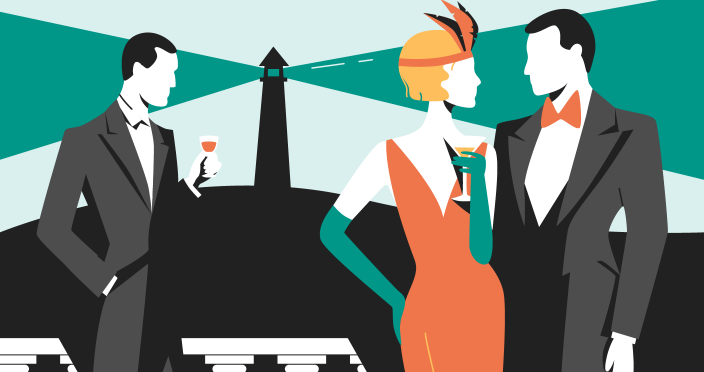
Everyone is fascinated by a certain Mr. Gatsby, a mysterious Nick’s neighbor who lives in a luxurious mansion and regularly throws epic parties. One day, Nick receives an invitation to one of Gatsby’s parties. The Great Gatsby ‘s party is the focus of this chapter.
Welcome The Great Gatsby Chapter 3 Summary & Analysis page prepared by our editorial team!
🎭 Active Characters
🔥 active themes.
- 🗺️ Navigation
🎓 References
📖 the great gatsby: summary of chapter 3.
Jay Gatsby is known for the huge and lavish parties he throws every weekend in the summer. People gather at his mansion to drink champagne, chat, dance, and have fun. Gatsby offers everything they need for it. The guests are free to use his pool and boats. They are treated with dinner and entertained by the whole orchestra. People enjoy the festivities till the morning hours.
Finally, Nick receives an invitation . He takes a short walk to his first party, but it doesn’t make a good first impression. Nick feels uncomfortable around all the strangers. He “was one of the few guests who had actually been invited.” He is trying to find the party’s host, but no one can help, and it seems like no one even knows how Gatsby looks. Nick runs into Jordan Baker. Together they wander around the mansion, listening to the chitchats and passing by endless servings of alcohol .
“The lights grow brighter as the earth lurches away from the sun and now the orchestra is playing yellow cocktail music and the opera of voices pitches a key higher. Laughter is easier, minute by minute, spilled with prodigality, tipped out at a cheerful word.” ( The Great Gatsby , chapter 3)
The main discussion topic here is rumors about Gatsby . Nick and Jordan overhear someone speculating that he is a German spy and even killed a man. They are trying to find their mysterious host and end up in the library. There they meet a man who wears weird glasses, resembling the eyes of the owl, so Nick gives him a nickname “Owl-Eyes.” The man is quite drunk and, astonished by how real Gatsby’s book collection is, he handles Nick some of the books to check.
Later, after a few glasses of champagne, “bigger than finger bowls,” Nick and Jordan go outside. There, Nick starts talking to a handsome man, who he recognizes after it appears that they met during the war. Then the man smiled with “one of those rare smiles with a quality of eternal reassurance in it”. He introduced himself as Jay Gatsby . Nick realizes that he doesn’t play the role of the host much. Jay stays aside, just watching over the guests.
“…my eyes fell on Gatsby, standing alone on the marble steps and looking from one group to another with approving eyes… I could see nothing sinister about him. I wondered if the fact that he was not drinking helped to set him off from his guests, for it seemed to me that he grew more correct as the fraternal hilarity increased.” ( The Great Gatsby , chapter 3)
Jordan leaves to have a private talk with Gatsby, but after she only says it was “the most amazing thing” that she heard. Gatsby has to get a phone call from someone in Philadelphia, and Nick says goodbye to him. When he’s walking home, he notices a car accident. It is Owl-Eyes trying to get his car out of the ditch. However, after some struggles, he gives up and leaves his car there.
Nick finishes the chapter with a short description of his life so that people know it’s not only partying. He’s got a job in New York City and has a casual relationship. After dating a lady from New Jersey, he follows the advice of the Buchanans and starts seeing Jordan. However, he has mixed feelings for her. Nick doesn’t like her dishonesty and then leaves a remark that he’s “one of the few honest people” he knows.
Nick Carraway, Jordan Baker, Jay Gatsby, Owl-Eyes
🔬 The Great Gatsby: Analysis of Chapter 3
At the beginning of The Great Gatsby ‘s Chapter 3 summary, the description of the extravagant party seems like the American Dream itself coming to real life. From the previous chapters, it should be clear that “new rich” and “old rich” are on bad terms. Here, however, East Egg aristocrats don’t mind coming to Gatsby’s West Egg ornate mansion . It may show that deep down, “old rich” don’t care about the bad manners of “new rich,” only trying to keep the vital drama going. So whenever it comes to coming to West Egg for a party, they seem blinded by an opportunity to enjoy free food, drinks, and entertainment. “ Nouveau riche ” most likely come to Gatsby’s weekend parties to make new social connections and become a part of the upper-class East Egg community. However, it seems like getting drunk there doesn’t help to keep their poor etiquette under control.
One of many party scenes in The Great Gatsby reveals the significance of the colors . Gatsby’s parties stand as a counterpart to the mundane life , especially to life in the Valley of Ashes. While the valley displays all shades of grey only, the party blooms with all kinds of flashy gold, white, and black. The setting stays in this tone throughout the whole novel. These are the colors of royalty, meaning that only people with money come to the West Egg parties. However, the royal colors may be a cover-up for their shallowness – one of the book’s main themes.
Another underlying issue is the reasons why Gatsby throws the parties. When Nick noticed that the host is not interested in drinking and chatting with guests, he realized that he must have other motives. Jay Gatsby is introduced as a mysterious character with a vague past and unclear identity from the very beginning. Further on, Nick finds him different from other rich people. Though the money corrupts Gatsby, just like everybody, his goal is pure, but it’s hidden from the readers.
The party shown in The Great Gatsby ‘s Ch.3 questions the existence of Prohibition back then. The amount of alcohol described there cannot be left unnoticed. So how come everyone is drinking so hard while it’s punishable by law? This issue should not be excluded from The Great Gatsby ‘s analysis. Multiple quotes confirm that all main characters of the novel drink heavily. Whether it’s a drunken party at Tom’s apartment in New York or a huge festivity at Gatsby’s property, no one cares about the Prohibition. First of all, it’s a symbol of resistance in America as people want to have the freedom to do whatever they want. Secondly, drinking appears in the novel as a mark of privileged people as they have more power. It is one of the ways people break legal and moral laws in this book. The fact that everybody is drinking so openly at Jay Gatsby’s parties might be suggesting that he’s connected to the underworld. His character’s analysis conclusion is that he stays as mysterious as he was in the first chapters.
- The Great Gatsby by F. Scott Fitzgerald – Free Ebook
- The Great Gatsby I Summary
- Love, wealth and recreation: examining The Great Gatsby
- Share to Facebook
- Share to Twitter
- Share to LinkedIn
- Share to email
Study Guide Menu
- Short Summary
- Summary (Chapter 1)
- Summary (Chapter 2)
- Summary (Chapter 3)
- Summary (Chapter 4)
- Summary (Chapter 5)
- Summary (Chapter 6)
- Summary (Chapter 7)
- Summary (Chapter 8)
- Summary (Chapter 9)
- Symbolism & Style
- Quotes Explained
- Essay Topics
- Essay Samples
- Questions & Answers
- F. Scott Fitzgerald’s Biography
- Chicago (A-D)
- Chicago (N-B)
IvyPanda. (2023, August 14). The Great Gatsby: Summary (Chapter 3). https://ivypanda.com/lit/the-great-gatsby-study-guide/summary-chapter-3/
"The Great Gatsby: Summary (Chapter 3)." IvyPanda , 14 Aug. 2023, ivypanda.com/lit/the-great-gatsby-study-guide/summary-chapter-3/.
IvyPanda . (2023) 'The Great Gatsby: Summary (Chapter 3)'. 14 August.
IvyPanda . 2023. "The Great Gatsby: Summary (Chapter 3)." August 14, 2023. https://ivypanda.com/lit/the-great-gatsby-study-guide/summary-chapter-3/.
1. IvyPanda . "The Great Gatsby: Summary (Chapter 3)." August 14, 2023. https://ivypanda.com/lit/the-great-gatsby-study-guide/summary-chapter-3/.
Bibliography
IvyPanda . "The Great Gatsby: Summary (Chapter 3)." August 14, 2023. https://ivypanda.com/lit/the-great-gatsby-study-guide/summary-chapter-3/.
- The Great Gatsby
F. Scott Fitzgerald
- Literature Notes
- The Great Gatsby at a Glance
- Book Summary
- About The Great Gatsby
- Character List
- Summary and Analysis
- Character Analysis
- Nick Carraway
- Daisy Buchanan
- Character Map
- F. Scott Fitzgerald Biography
- Critical Essays
- Social Stratification: The Great Gatsby as Social Commentary
- In Praise of Comfort: Displaced Spirituality in The Great Gatsby
- Famous Quotes from The Great Gatsby
- Film Versions of The Great Gatsby
- Full Glossary for The Great Gatsby
- Essay Questions
- Practice Projects
- Cite this Literature Note
Summary and Analysis Chapter 3
Nick's attentions again turn to Gatsby in Chapter 3. Gatsby, in the summer months, was known far and wide for the extravagant parties he threw in which "men and girls came and went like moths among the whisperings and the champagne and the stars." During the weekend, people flocked to his house for his parties, as well as to use his pool, his boats, his car, and so on. His gatherings were lavishly catered (serving two complete dinners), boasting not just a small combo of musicians, but a whole orchestra. The guests enjoyed themselves, flirting and dancing, until the wee hours of the morning.
After seeing these parties from afar, Nick is invited by Gatsby by a handwritten note to join in the festivities. Nick is one of the few to have actually been invited. The others simply arrive, knowing only that there will be a party and they won't be turned away. At the party, Nick tries to find Gatsby, but has no luck. No one can tell him where Gatsby is, suggesting that they, themselves, didn't know the host. As Nick mills around the party, he encounters Jordan Baker and the two of them two mingle around, inadvertently gathering rumors about Gatsby, including that he had once killed a man. After several glasses of champagne, Nick begins a conversation with a fellow who is, unbeknownst to him, Gatsby himself. Later, Gatsby takes Jordan Baker aside to speak with her privately. What they discuss is not revealed, but Jordan passes along that it is "the most amazing thing."
Not wanting the reader to think his summer was composed merely of the three events outlined in the book's first three chapters, Nick interjects that much more happened to him, although it largely entailed working, dating casually, and dining at the Yale Club. His affinity for New York has been growing throughout the summer as he begins to appreciate its "enchanted metropolitan twilight" and how everyone hurried "toward gayety." Nick meets up with Jordan Baker in mid-summer and as the two begin to see more of each other, Nick begins to look upon her with "a sort of tender curiosity." He realizes, though, that Jordan is "incurably dishonest." In fact, the reason Nick remembered her name initially is that she had once been accused of cheating in a golf tournament. Despite Jordan's downfalls, she intrigues Nick, although he ends the chapter by touting his own cardinal virtue, claiming modestly, "I am one of the few honest people that I have ever known."
Chapter 3 is, in many ways, like Chapter 2, moving from one party to another, encouraging the juxtaposition of the two events. Tom's party and Gatsby's party are quite different, although in some ways alike, encouraging the reader to explore in what ways the two men are also similar. The purpose of Chapter 3 is, also like Chapter 2, to provide essential background, although this time it is Gatsby who is introduced. By inserting the chapter about Tom, Fitzgerald has effectively held off introducing the story's main character, helping to build an air of mystery around him, not unlike the mystery that Nick and the others initially associate with him, and by keeping the reader from meeting Gatsby, Fitzgerald links the reader even more closely to Nick. However, the information is sketchy — later chapters help to round out the picture of him: who he is and where he comes from.
Nick tells of Gatsby's parties, elaborate and grand affairs that attract entertainers, socialites, and even ordinary people. Gatsby is a perfect host, generous and hospitable. In fact, he is courteous to the point of being taken advantage of. People routinely come to his house for the parties, but also to use his boats, his plane, his cars, and so on. Gatsby must not mind all his guests, however, because every weekend continues in the same patterns of excess and opulence as he provides his guests with only the finest food, drink, and entertainment.
Nick, living next door to Gatsby, has been observing the parties at a distance, as a casual observer, but in Chapter 3 he is officially invited to attend one. As he moves from being a spectator to being a participant, Nick is able to provide an informed view of not only what goes on at Gatsby's parties, but also what the partygoers themselves are like. When Nick reveals that he is one of the few invited guests at the party, this little detail tells quite a lot: It signals that in some yet unexplained way, Nick is set apart from the typical party guest. Despite living next door to Gatsby, he has never succumbed to the urge to crash one of the parties (which would have been easy enough to do, given the way in which people come and go from Gatsby's affairs). Perhaps it is Nick's Midwestern roots and their implied propriety that keep him at a distance, but regardless, his sense of decorum shows brightly throughout this scene, helping readers see him as a character with integrity.
Having Nick at Gatsby's party provides an unprecedented chance to peer into the lives of the seemingly well-to-do people who attend. The impression is not very appealing. It turns out that the glamorous and glib party guests are, in fact, quite shallow. Nick says that they "conducted themselves according to the rules of behavior associated with amusement parks," again stressing the carefree, stereotypical roaring '20s atmosphere. Much to the partygoers' discredit, however, "sometimes they came and went without having met Gatsby at all." In stark contrast, Nick "as soon as [he] arrived . . . made an attempt to find [his] host." He had little luck, however, because no one could help him. In fact, when Nick asks people for help in finding Gatsby, they can only look at him "in such an amazed way" and vehemently deny "any knowledge of his movements," again setting a stark contrast between himself and the people he tells us about.
The only person Nick encounters at the party whom he knows is Jordan Baker. The mere fact that Jordan is at the party suggests that she is, in some ways (ways that are explored later in this chapter and beyond), an extension of the party-going set. Although little is known of her, up to this point, her presence at the mansion suggests that she likely runs with the sort of people who frequent Gatsby's house. She seems intrigued by Nick, however, just as he is intrigued by her, for reasons that remain unstated. Perhaps she finds Nick a welcome relief to the kinds of men she generally meets, or perhaps she is drawn to his Midwestern sensibility, for it is clear he doesn't yet blend in with the East Coast crowd. Whatever it is that draws her to him, she has never before been involved with anyone quite like Nick (this is especially brought out in Chapters 8 and 9).
While Nick and Jordan mingle at Gatsby's party, they learn many intriguing things about their host, and everything they learn underscores the idea of reality versus rumor that underlies so much of The Great Gatsby . One of the first things the couple find out is that when one partygoer tore a dress at a party, Gatsby sent her a new evening gown worth a small fortune. Nick and Jordan also discover that part of the Gatsby mythos is that "he killed a man once." Another romantic rumor places Gatsby as "a German spy during the war." How interesting that no one really knows much about Gatsby! In a way, it is a sad commentary on the people attending the party: Can they really care so little about their host that they don't even have the common courtesy to find the difference between fiction and fact? Instead, they believe what is convenient or easy for them, creating a version of Jay Gatsby that meets their ideals. Ironically, the guests' construction of their host is not unlike how the host himself, as is later revealed, has constructed himself.
As Nick and Jordan saunter around, they also shed more light on the partygoers themselves. For example, while Nick and Jordan explore the house (under the pretense, at least, of looking for Gatsby), they meet a man known throughout the book as "Owl Eyes" due to his glasses. Two things are striking about him. First, he seems impressed that the books in Gatsby's library are real. Although this may seem merely a careless remark, in fact, it speaks volumes. Gatsby, unlike Tom, is "new money," and Owl Eyes knows it. Clearly he has spent a great deal of time among the nouveaux riches and knows them well enough to know that they are, by and large, about appearances. He is surprised that the books are real, expecting, instead, for them to "be a nice durable cardboard," giving the illusion of a library where none really exists. Instead, Gatsby does indeed have real books. Everything in the house, Gatsby reveals later, has been painstakingly chosen to create an image of affluence. The second revealing statement Owl Eyes makes is that he's "been drunk for about a week now." In this respect, he is a perfect poster boy for the Jazz Age, drunk to incapacitation for weeks on end.
The carnivalesque atmosphere of Gatsby's party continues as the couple heads outdoors, still searching for their host. Nick offers a telling commentary on the way of life he's witnessing, stating that after he had enough champagne, "the scene had changed before [his] eyes into something significant, elemental, and profound." Sober, this scene has no more significance than any other, but through the haze of alcohol, it seems to become steeped in meaning. Again, Fitzgerald offers candid commentary into life in the Jazz Age. He is, in effect, offering harsh social criticism, by suggesting that the only way in which a sense of meaning is to be found in this time is through altering one's sense of consciousness. Through the partying, people were able to bring meaning (regardless of the fact it may be false meaning) into their otherwise meaningless lives. For them, drinking was an escape, allowing them to exit the mundane world and take part in something bigger, something more meaningful.
The first glimpse of Gatsby reveals a man who stands apart from the type of guests he routinely hosts at his parties. Much to Fitzgerald's credit, the reader, just like Nick, falls into the trap of interacting with Gatsby before his identity is ever revealed. Nick strikes up a conversation with someone of a bit more substance than the typical party guest — someone who asks him questions about himself and is somewhat interested in him (albeit a general passing interest). In fact, Nick remarks that Gatsby possesses "a quality of eternal reassurance . . . that you may come across four or five times in life." His smile, Nick asserts, "believed in you as you would like to believe in yourself, and assured you that it had precisely the impression of you that, at your best, you hoped to convey." The understanding projected through Gatsby's smile is not without its roots — the incidents in his past (especially those discussed in Chapter 6) have led him to value a well-crafted appearance.
The image of Gatsby is one of extreme propriety. From the "majestic hand" that signed Nick's invitation to the full-sized orchestra and exquisite catering, Gatsby appears the perfect gentleman. He is gracious and kindhearted (or else how could he put up with his own guests?), a combination that gives rise to rumors. He is, however, set apart from the guests, both mentally and physically. Nick indicates that during the course of the evening, as men and women began to move closer to each other in gestures of flirtation, Gatsby was strikingly marginalized. No one sought to rest her head on his shoulder, no friends sought him out to join their small and intimate groups. Gatsby, the host, remained strikingly aloof from his guests. Nick, likely, is one of the first people to ever realize this. (Again, as a testament to his general nature, Nick comes off as a credible and trustworthy narrator.) Just as one may think that Gatsby will have nothing to do with any woman, however, he sends for Jordan Baker, wishing to speak to her privately. When Jordan returns, Fitzgerald, wanting to maintain suspense for a bit longer, withholds the purpose of their discussion, but Jordan says that it was "the most amazing thing," which is finally discussed at the end of Chapter 4.
In addition to providing information about Gatsby, his parties, and his party guests, Chapter 3 also chronicles a return to the issues of morality and equity introduced in Chapter 1. Toward the chapter's end, Nick shifts his focus away from Gatsby and toward Jordan. He reveals his interest in her, but tempers it by discussing her apparent penchant for lying. While he is initially "flattered to go places with her," largely because of her fame, he isn't "actually in love" but feels "a sort of tender curiosity." Nick's opinion of Jordan changes, however, when he finds that she makes a habit of lying her way out of bad situations, thus revealing two contrary facets of his nature. Unlike many of the novel's characters who delight in basking in the fame and notoriety of others (take for instance Myrtle's delight at the power and prestige she gets from being with Tom), Nick's judgment is not entirely clouded by fame. Even though Nick is fond of Jordan he is still able to discern her lack of honesty. However, as admirable as that is, Nick contradicts this good judgment when he confesses that "Dishonesty in a woman is a thing you never blame deeply — I was casually sorry, and then I forgot." Clearly, although he wouldn't admit it, he does hold a double standard, excusing Jordan's shortcomings because of her gender. As the chapter ends, Nick reveals his own sense of self-worth: Of all the people he has known, he is one of the few who is honest. In many respects, this is true, and as the story continues, Nick's moral fortitude becomes more and more pronounced, but the mere fact that he has dismissed Jordan's dishonesty makes the reader wonder, at least momentarily, whether this is true.
omnibus a bus; having a variety of purposes or uses.
fortnight a period of two weeks.
prodigality wastefulness or extreme lavishness.
The Follies immensely popular revue started by Florenz Ziegfeld in 1907.
white flannels white trousers made of light flannel.
Stoddard lectures travel books taking in the entire world.
Belasco David Belasco (1853-1931); U.S. theatrical producer, playwright, and actor.
coupe a closed, two-door automobile with a body smaller than that of a sedan.
Yale Club private social club in New York City.
Previous Chapter 2
Next Chapter 4
has been added to your
Reading List!
Removing #book# from your Reading List will also remove any bookmarked pages associated with this title.
Are you sure you want to remove #bookConfirmation# and any corresponding bookmarks?
The Great Gatsby
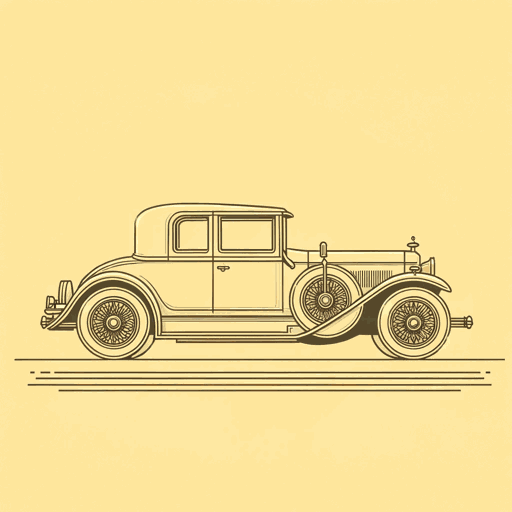
45 pages • 1 hour read
A modern alternative to SparkNotes and CliffsNotes, SuperSummary offers high-quality Study Guides with detailed chapter summaries and analysis of major themes, characters, and more.
Chapter Summaries & Analyses
Character Analysis
Symbols & Motifs
Important Quotes
Essay Topics
Discussion Questions
Chapter 3 Chapter Summaries & Analyses
Chapter 3 summary.
Gatsby holds regular parties that feature huge banquets, music, and hundreds of people who come and go as they please.
Nick goes on to describe his own first appearance at one of Gatsby’s parties. He notes with amusement that he attended in response to a very formal invitation, delivered by a chauffeur. This is in contrast to the partygoers, most of whom do not even know Gatsby.
Get access to this full Study Guide and much more!
- 7,350+ In-Depth Study Guides
- 4,950+ Quick-Read Plot Summaries
- Downloadable PDFs
When he arrives at the party, Nick runs into Jordan. She explains that she likes large parties because they provide anonymity. Nick is glad to have someone he knows there. Jordan speaks with a woman who explains that at a previous party, she tore a dress on a chair. To make up for this accident, Gatsby has an expensive new dress sent to her home.
Nick overhears the rumors that the guests distribute about Gatsby. They are contradictory explanations of his wealth and origin: some call him a former German spy, others an American war hero, and still others say “he killed a man once.”
The SuperSummary difference
- 8x more resources than SparkNotes and CliffsNotes combined
- Study Guides you won ' t find anywhere else
- 100+ new titles every month

Don't Miss Out!
Access Study Guide Now

Related Titles
By F. Scott Fitzgerald

Babylon Revisited
F. Scott Fitzgerald

Bernice Bobs Her Hair

Crazy Sunday

Tender Is the Night
The Beautiful and Damned
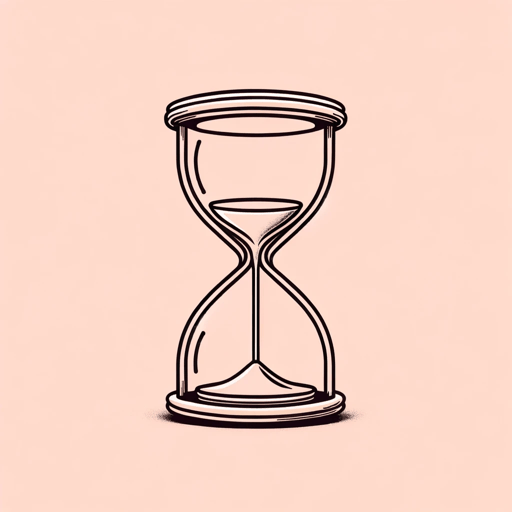
The Curious Case of Benjamin Button
The Diamond as Big as the Ritz
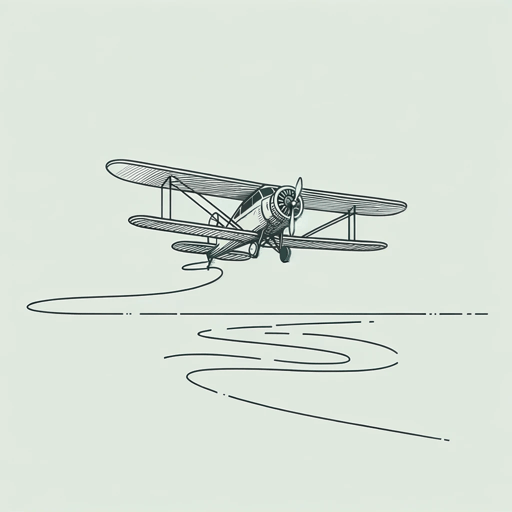
The Last Tycoon
This Side of Paradise

Winter Dreams
Featured Collections
American Literature
View Collection
Audio Study Guides
Banned Books Week
Books Made into Movies
BookTok Books
The Lost Generation

Sign Up Today
Start your 14 day free trial today
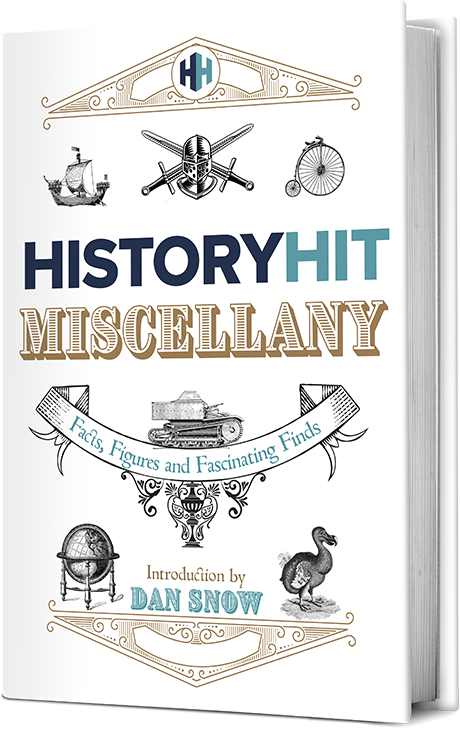
The History Hit Miscellany of Facts, Figures and Fascinating Finds
The Great Gatsby by F. Scott Fitzgerald – Chapter 3 with Summary
Full chapter of f. scott fitzgerald's iconic novel set in 1920s america..

Lucy Davidson
02 jan 2022, @lucejuiceluce.
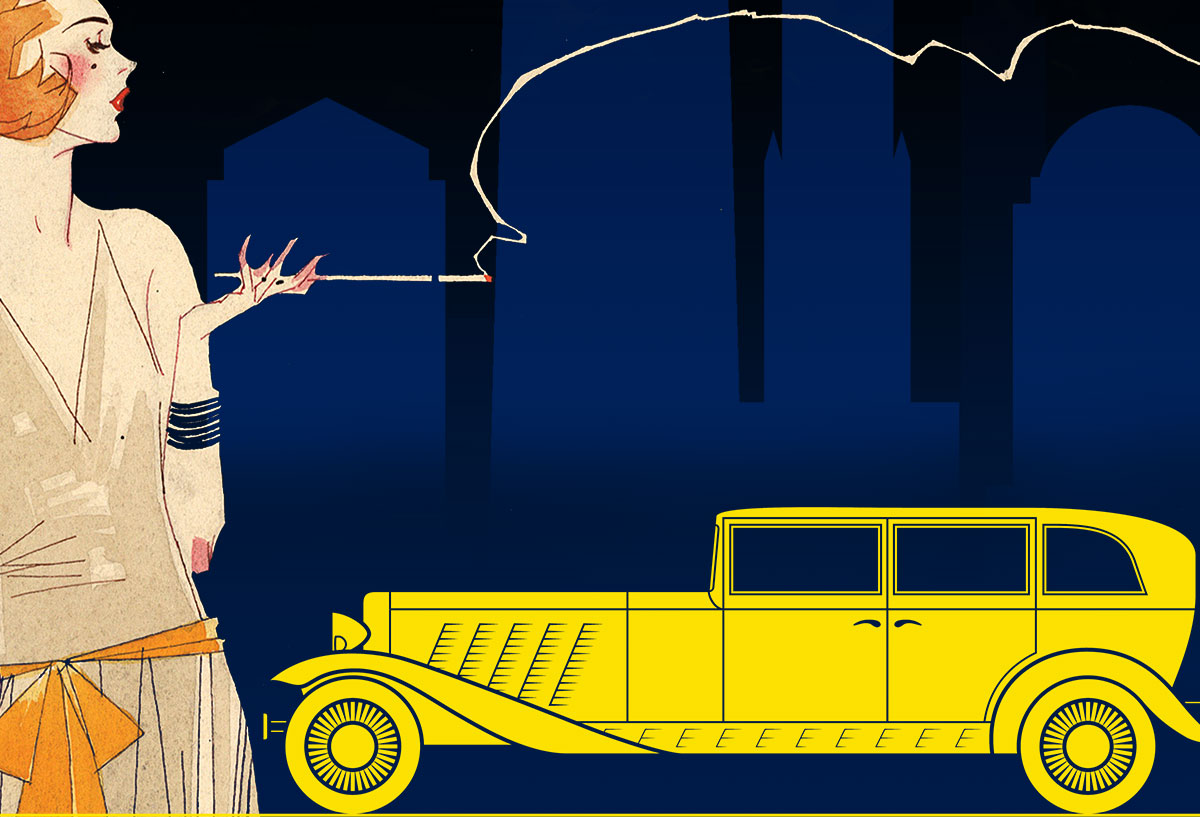
Chapter 3 Summary
Nick describes Gatsby’s lavish and famous summer parties that are widely-attended, fully catered and frequently feature a whole orchestra. One day, Nick is invited to attend a party via a handwritten note from Gatsby. He is one of the few that has actually been invited; most of the guests simply arrive. At the party, Nick tries to find Gatsby, and notes that most people don’t even know what he looks like. Nick bumps into Jordan Baker, whose friend, Lucille, says that she thinks Gatsby was a German spy during the war.
Rumours swirl about Gatsby, including one that suggests he once killed a man. What becomes clear is that nobody actually knows anything about Gatsby’s wealth or personal history. Nick and Jordan set out to find Gatsby, but instead run into a middle-aged man with large spectacles (who Nick calls ‘Owl Eyes’) who is reading the unread books in Gatsby’s library. Outside, Nick and Jordan start a conversation with a handsome man who introduces himself as none other than Jay Gatsby himself. He makes an elaborate and formal speech, and refers to everyone as ‘old sport’.
Nick becomes increasingly fascinated with Gatsby, noticing that he spends most of his time apart from the guests, lingering on the marble steps. Gatsby later takes Jordan Baker aside privately; what they discuss isn’t revealed, but Jordan does remark to Nick that whatever it was is ‘the most amazing thing’. On his way home, Nick witnesses a drunken Owl Eyes and another man climb out of a wrecked car in a ditch.
Nick reveals what else he has been doing since he moved to West Egg; it mainly consists of working, casual dating, dining at the Yale Club and generally enjoying a growing appreciation for New York. He meets up with Jordan Baker, and though he is somewhat attracted to her, he realises that she is known for being very dishonest, and has even been accused of cheating in a golf tournament. Her character is in opposition to his, claims Nick, since he is a very honest person.
The Great Gatsby, Chapter 3 Full Text
There was music from my neighbor’s house through the summer nights. In his blue gardens men and girls came and went like moths among the whisperings and the champagne and the stars. At high tide in the afternoon I watched his guests diving from the tower of his raft or taking the sun on the hot sand of his beach while his two motor-boats slit the waters of the Sound, drawing aquaplanes over cataracts of foam. On week-ends his Rolls-Royce became an omnibus, bearing parties to and from the city, between nine in the morning and long past midnight, while his station wagon scampered like a brisk yellow bug to meet all trains. And on Mondays eight servants including an extra gardener toiled all day with mops and scrubbing-brushes and hammers and garden-shears, repairing the ravages of the night before.
Every Friday five crates of oranges and lemons arrived from a fruiterer in New York—every Monday these same oranges and lemons left his back door in a pyramid of pulpless halves. There was a machine in the kitchen which could extract the juice of two hundred oranges in half an hour, if a little button was pressed two hundred times by a butler’s thumb.
At least once a fortnight a corps of caterers came down with several hundred feet of canvas and enough colored lights to make a Christmas tree of Gatsby’s enormous garden. On buffet tables, garnished with glistening hors-d’oeuvre, spiced baked hams crowded against salads of harlequin designs and pastry pigs and turkeys bewitched to a dark gold. In the main hall a bar with a real brass rail was set up, and stocked with gins and liquors and with cordials so long forgotten that most of his female guests were too young to know one from another.
By seven o’clock the orchestra has arrived—no thin five-piece affair but a whole pitful of oboes and trombones and saxophones and viols and cornets and piccolos and low and high drums. The last swimmers have come in from the beach now and are dressing upstairs; the cars from New York are parked five deep in the drive, and already the halls and salons and verandas are gaudy with primary colors and hair shorn in strange new ways and shawls beyond the dreams of Castile. The bar is in full swing and floating rounds of cocktails permeate the garden outside until the air is alive with chatter and laughter and casual innuendo and introductions forgotten on the spot and enthusiastic meetings between women who never knew each other’s names.
The lights grow brighter as the earth lurches away from the sun and now the orchestra is playing yellow cocktail music and the opera of voices pitches a key higher. Laughter is easier, minute by minute, spilled with prodigality, tipped out at a cheerful word. The groups change more swiftly, swell with new arrivals, dissolve and form in the same breath—already there are wanderers, confident girls who weave here and there among the stouter and more stable, become for a sharp, joyous moment the center of a group and then excited with triumph glide on through the sea-change of faces and voices and color under the constantly changing light.
Suddenly one of these gypsies in trembling opal, seizes a cocktail out of the air, dumps it down for courage and moving her hands like Frisco dances out alone on the canvas platform. A momentary hush; the orchestra leader varies his rhythm obligingly for her and there is a burst of chatter as the erroneous news goes around that she is Gilda Gray’s understudy from the “Follies.” The party has begun.
I believe that on the first night I went to Gatsby’s house I was one of the few guests who had actually been invited. People were not invited—they went there. They got into automobiles which bore them out to Long Island and somehow they ended up at Gatsby’s door. Once there they were introduced by somebody who knew Gatsby and after that they conducted themselves according to the rules of behavior associated with amusement parks. Sometimes they came and went without having met Gatsby at all, came for the party with a simplicity of heart that was its own ticket of admission.
I had been actually invited. A chauffeur in a uniform of robin’s egg blue crossed my lawn early that Saturday morning with a surprisingly formal note from his employer—the honor would be entirely Gatsby’s, it said, if I would attend his “little party” that night. He had seen me several times and had intended to call on me long before but a peculiar combination of circumstances had prevented it—signed Jay Gatsby in a majestic hand.
Dressed up in white flannels I went over to his lawn a little after seven and wandered around rather ill-at-ease among swirls and eddies of people I didn’t know—though here and there was a face I had noticed on the commuting train. I was immediately struck by the number of young Englishmen dotted about; all well dressed, all looking a little hungry and all talking in low earnest voices to solid and prosperous Americans. I was sure that they were selling something: bonds or insurance or automobiles. They were, at least, agonizingly aware of the easy money in the vicinity and convinced that it was theirs for a few words in the right key.
As soon as I arrived I made an attempt to find my host but the two or three people of whom I asked his whereabouts stared at me in such an amazed way and denied so vehemently any knowledge of his movements that I slunk off in the direction of the cocktail table—the only place in the garden where a single man could linger without looking purposeless and alone.
I was on my way to get roaring drunk from sheer embarrassment when Jordan Baker came out of the house and stood at the head of the marble steps, leaning a little backward and looking with contemptuous interest down into the garden.
Welcome or not, I found it necessary to attach myself to someone before I should begin to address cordial remarks to the passers-by.
“Hello!” I roared, advancing toward her. My voice seemed unnaturally loud across the garden.
“I thought you might be here,” she responded absently as I came up. “I remembered you lived next door to—”
She held my hand impersonally, as a promise that she’d take care of me in a minute, and gave ear to two girls in twin yellow dresses who stopped at the foot of the steps.
“Hello!” they cried together. “Sorry you didn’t win.”
That was for the golf tournament. She had lost in the finals the week before.
“You don’t know who we are,” said one of the girls in yellow, “but we met you here about a month ago.”
“You’ve dyed your hair since then,” remarked Jordan, and I started but the girls had moved casually on and her remark was addressed to the premature moon, produced like the supper, no doubt, out of a caterer’s basket. With Jordan’s slender golden arm resting in mine we descended the steps and sauntered about the garden. A tray of cocktails floated at us through the twilight and we sat down at a table with the two girls in yellow and three men, each one introduced to us as Mr. Mumble.
“Do you come to these parties often?” inquired Jordan of the girl beside her.
“The last one was the one I met you at,” answered the girl, in an alert, confident voice. She turned to her companion: “Wasn’t it for you, Lucille?”
It was for Lucille, too.
“I like to come,” Lucille said. “I never care what I do, so I always have a good time. When I was here last I tore my gown on a chair, and he asked me my name and address—inside of a week I got a package from Croirier’s with a new evening gown in it.”
“Did you keep it?” asked Jordan.
“Sure I did. I was going to wear it tonight, but it was too big in the bust and had to be altered. It was gas blue with lavender beads. Two hundred and sixty-five dollars.”
“There’s something funny about a fellow that’ll do a thing like that,” said the other girl eagerly. “He doesn’t want any trouble with anybody.”
“Who doesn’t?” I inquired.
“Gatsby. Somebody told me—”
The two girls and Jordan leaned together confidentially.
“Somebody told me they thought he killed a man once.”
A thrill passed over all of us. The three Mr. Mumbles bent forward and listened eagerly.
“I don’t think it’s so much that,” argued Lucille skeptically; “it’s more that he was a German spy during the war.”
One of the men nodded in confirmation.
“I heard that from a man who knew all about him, grew up with him in Germany,” he assured us positively.
“Oh, no,” said the first girl, “it couldn’t be that, because he was in the American army during the war.” As our credulity switched back to her she leaned forward with enthusiasm. “You look at him sometimes when he thinks nobody’s looking at him. I’ll bet he killed a man.”
She narrowed her eyes and shivered. Lucille shivered. We all turned and looked around for Gatsby. It was testimony to the romantic speculation he inspired that there were whispers about him from those who found little that it was necessary to whisper about in this world.
The first supper—there would be another one after midnight—was now being served, and Jordan invited me to join her own party who were spread around a table on the other side of the garden. There were three married couples and Jordan’s escort, a persistent undergraduate given to violent innuendo and obviously under the impression that sooner or later Jordan was going to yield him up her person to a greater or lesser degree. Instead of rambling this party had preserved a dignified homogeneity, and assumed to itself the function of representing the staid nobility of the countryside—East Egg condescending to West Egg, and carefully on guard against its spectroscopic gayety.
“Let’s get out,” whispered Jordan, after a somehow wasteful and inappropriate half hour. “This is much too polite for me.”
We got up, and she explained that we were going to find the host—I had never met him, she said, and it was making me uneasy. The undergraduate nodded in a cynical, melancholy way.
The bar, where we glanced first, was crowded but Gatsby was not there. She couldn’t find him from the top of the steps, and he wasn’t on the veranda. On a chance we tried an important-looking door, and walked into a high Gothic library, panelled with carved English oak, and probably transported complete from some ruin overseas.
A stout, middle-aged man with enormous owl-eyed spectacles was sitting somewhat drunk on the edge of a great table, staring with unsteady concentration at the shelves of books. As we entered he wheeled excitedly around and examined Jordan from head to foot.
“What do you think?” he demanded impetuously.
“About what?”
He waved his hand toward the book-shelves.
“About that. As a matter of fact you needn’t bother to ascertain. I ascertained. They’re real.”
“The books?”
“Absolutely real—have pages and everything. I thought they’d be a nice durable cardboard. Matter of fact, they’re absolutely real. Pages and—Here! Lemme show you.”
Taking our skepticism for granted, he rushed to the bookcases and returned with Volume One of the “Stoddard Lectures.”
“See!” he cried triumphantly. “It’s a bona fide piece of printed matter. It fooled me. This fella’s a regular Belasco. It’s a triumph. What thoroughness! What realism! Knew when to stop too—didn’t cut the pages. But what do you want? What do you expect?”
He snatched the book from me and replaced it hastily on its shelf muttering that if one brick was removed the whole library was liable to collapse.
“Who brought you?” he demanded. “Or did you just come? I was brought. Most people were brought.”
Jordan looked at him alertly, cheerfully without answering.
“I was brought by a woman named Roosevelt,” he continued. “Mrs. Claud Roosevelt. Do you know her? I met her somewhere last night. I’ve been drunk for about a week now, and I thought it might sober me up to sit in a library.”
“Has it?”
“A little bit, I think. I can’t tell yet. I’ve only been here an hour. Did I tell you about the books? They’re real. They’re—”
“You told us.”
We shook hands with him gravely and went back outdoors.
There was dancing now on the canvas in the garden, old men pushing young girls backward in eternal graceless circles, superior couples holding each other tortuously, fashionably and keeping in the corners—and a great number of single girls dancing individualistically or relieving the orchestra for a moment of the burden of the banjo or the traps. By midnight the hilarity had increased. A celebrated tenor had sung in Italian and a notorious contralto had sung in jazz and between the numbers people were doing “stunts” all over the garden, while happy vacuous bursts of laughter rose toward the summer sky. A pair of stage “twins”—who turned out to be the girls in yellow—did a baby act in costume and champagne was served in glasses bigger than finger bowls. The moon had risen higher, and floating in the Sound was a triangle of silver scales, trembling a little to the stiff, tinny drip of the banjoes on the lawn.
I was still with Jordan Baker. We were sitting at a table with a man of about my age and a rowdy little girl who gave way upon the slightest provocation to uncontrollable laughter. I was enjoying myself now. I had taken two finger bowls of champagne and the scene had changed before my eyes into something significant, elemental and profound.
At a lull in the entertainment the man looked at me and smiled.
“Your face is familiar,” he said, politely. “Weren’t you in the Third Division during the war?”
“Why, yes. I was in the Ninth Machine-Gun Battalion.”
“I was in the Seventh Infantry until June nineteen-eighteen. I knew I’d seen you somewhere before.”
We talked for a moment about some wet, grey little villages in France. Evidently he lived in this vicinity for he told me that he had just bought a hydroplane and was going to try it out in the morning.
“Want to go with me, old sport? Just near the shore along the Sound.”
“What time?”
“Any time that suits you best.”
It was on the tip of my tongue to ask his name when Jordan looked around and smiled.
“Having a gay time now?” she inquired.
“Much better.” I turned again to my new acquaintance. “This is an unusual party for me. I haven’t even seen the host. I live over there—” I waved my hand at the invisible hedge in the distance, “and this man Gatsby sent over his chauffeur with an invitation.”
For a moment he looked at me as if he failed to understand.
“I’m Gatsby,” he said suddenly.
“What!” I exclaimed. “Oh, I beg your pardon.”
“I thought you knew, old sport. I’m afraid I’m not a very good host.”
He smiled understandingly—much more than understandingly. It was one of those rare smiles with a quality of eternal reassurance in it, that you may come across four or five times in life. It faced—or seemed to face—the whole external world for an instant, and then concentrated on you with an irresistible prejudice in your favor. It understood you just so far as you wanted to be understood, believed in you as you would like to believe in yourself and assured you that it had precisely the impression of you that, at your best, you hoped to convey. Precisely at that point it vanished—and I was looking at an elegant young rough-neck, a year or two over thirty, whose elaborate formality of speech just missed being absurd. Some time before he introduced himself I’d got a strong impression that he was picking his words with care.
Almost at the moment when Mr. Gatsby identified himself a butler hurried toward him with the information that Chicago was calling him on the wire. He excused himself with a small bow that included each of us in turn.
“If you want anything just ask for it, old sport,” he urged me. “Excuse me. I will rejoin you later.”
When he was gone I turned immediately to Jordan—constrained to assure her of my surprise. I had expected that Mr. Gatsby would be a florid and corpulent person in his middle years.
“Who is he?” I demanded. “Do you know?”
“He’s just a man named Gatsby.”
“Where is he from, I mean? And what does he do?”
“Now you’re started on the subject,” she answered with a wan smile. “Well,—he told me once he was an Oxford man.”
A dim background started to take shape behind him but at her next remark it faded away.
“However, I don’t believe it.”
“Why not?”
“I don’t know,” she insisted, “I just don’t think he went there.”
Something in her tone reminded me of the other girl’s “I think he killed a man,” and had the effect of stimulating my curiosity. I would have accepted without question the information that Gatsby sprang from the swamps of Louisiana or from the lower East Side of New York. That was comprehensible. But young men didn’t—at least in my provincial inexperience I believed they didn’t—drift coolly out of nowhere and buy a palace on Long Island Sound.
“Anyhow he gives large parties,” said Jordan, changing the subject with an urbane distaste for the concrete. “And I like large parties. They’re so intimate. At small parties there isn’t any privacy.”
There was the boom of a bass drum, and the voice of the orchestra leader rang out suddenly above the echolalia of the garden.
“Ladies and gentlemen,” he cried. “At the request of Mr. Gatsby we are going to play for you Mr. Vladimir Tostoff’s latest work which attracted so much attention at Carnegie Hall last May. If you read the papers you know there was a big sensation.” He smiled with jovial condescension and added “Some sensation!” whereupon everybody laughed.
“The piece is known,” he concluded lustily, “as ‘Vladimir Tostoff’s Jazz History of the World.’ ”
The nature of Mr. Tostoff’s composition eluded me, because just as it began my eyes fell on Gatsby, standing alone on the marble steps and looking from one group to another with approving eyes. His tanned skin was drawn attractively tight on his face and his short hair looked as though it were trimmed every day. I could see nothing sinister about him. I wondered if the fact that he was not drinking helped to set him off from his guests, for it seemed to me that he grew more correct as the fraternal hilarity increased. When the “Jazz History of the World” was over girls were putting their heads on men’s shoulders in a puppyish, convivial way, girls were swooning backward playfully into men’s arms, even into groups knowing that some one would arrest their falls—but no one swooned backward on Gatsby and no French bob touched Gatsby’s shoulder and no singing quartets were formed with Gatsby’s head for one link.
“I beg your pardon.”
Gatsby’s butler was suddenly standing beside us.
“Miss Baker?” he inquired. “I beg your pardon but Mr. Gatsby would like to speak to you alone.”
“With me?” she exclaimed in surprise.
“Yes, madame.”
She got up slowly, raising her eyebrows at me in astonishment, and followed the butler toward the house. I noticed that she wore her evening dress, all her dresses, like sports clothes—there was a jauntiness about her movements as if she had first learned to walk upon golf courses on clean, crisp mornings.
I was alone and it was almost two. For some time confused and intriguing sounds had issued from a long many-windowed room which overhung the terrace. Eluding Jordan’s undergraduate who was now engaged in an obstetrical conversation with two chorus girls, and who implored me to join him, I went inside.
The large room was full of people. One of the girls in yellow was playing the piano and beside her stood a tall, red haired young lady from a famous chorus, engaged in song. She had drunk a quantity of champagne and during the course of her song she had decided ineptly that everything was very very sad—she was not only singing, she was weeping too. Whenever there was a pause in the song she filled it with gasping broken sobs and then took up the lyric again in a quavering soprano. The tears coursed down her cheeks—not freely, however, for when they came into contact with her heavily beaded eyelashes they assumed an inky color, and pursued the rest of their way in slow black rivulets. A humorous suggestion was made that she sing the notes on her face whereupon she threw up her hands, sank into a chair and went off into a deep vinous sleep.
“She had a fight with a man who says he’s her husband,” explained a girl at my elbow.
I looked around. Most of the remaining women were now having fights with men said to be their husbands. Even Jordan’s party, the quartet from East Egg, were rent asunder by dissension. One of the men was talking with curious intensity to a young actress, and his wife after attempting to laugh at the situation in a dignified and indifferent way broke down entirely and resorted to flank attacks—at intervals she appeared suddenly at his side like an angry diamond, and hissed “You promised!” into his ear.
The reluctance to go home was not confined to wayward men. The hall was at present occupied by two deplorably sober men and their highly indignant wives. The wives were sympathizing with each other in slightly raised voices.
“Whenever he sees I’m having a good time he wants to go home.”
“Never heard anything so selfish in my life.”
“We’re always the first ones to leave.”
“So are we.”
“Well, we’re almost the last tonight,” said one of the men sheepishly. “The orchestra left half an hour ago.”
In spite of the wives’ agreement that such malevolence was beyond credibility, the dispute ended in a short struggle, and both wives were lifted kicking into the night.
As I waited for my hat in the hall the door of the library opened and Jordan Baker and Gatsby came out together. He was saying some last word to her but the eagerness in his manner tightened abruptly into formality as several people approached him to say goodbye.
Jordan’s party were calling impatiently to her from the porch but she lingered for a moment to shake hands.
“I’ve just heard the most amazing thing,” she whispered. “How long were we in there?”
“Why,—about an hour.”
“It was—simply amazing,” she repeated abstractedly. “But I swore I wouldn’t tell it and here I am tantalizing you.” She yawned gracefully in my face. “Please come and see me…Phone book…Under the name of Mrs. Sigourney Howard…My aunt…” She was hurrying off as she talked—her brown hand waved a jaunty salute as she melted into her party at the door.
Rather ashamed that on my first appearance I had stayed so late, I joined the last of Gatsby’s guests who were clustered around him. I wanted to explain that I’d hunted for him early in the evening and to apologize for not having known him in the garden.
“Don’t mention it,” he enjoined me eagerly. “Don’t give it another thought, old sport.” The familiar expression held no more familiarity than the hand which reassuringly brushed my shoulder. “And don’t forget we’re going up in the hydroplane tomorrow morning at nine o’clock.”
Then the butler, behind his shoulder:
“Philadelphia wants you on the phone, sir.”
“All right, in a minute. Tell them I’ll be right there…good night.”
“Good night.”
“Good night.” He smiled—and suddenly there seemed to be a pleasant significance in having been among the last to go, as if he had desired it all the time. “Good night, old sport…Good night.”
But as I walked down the steps I saw that the evening was not quite over. Fifty feet from the door a dozen headlights illuminated a bizarre and tumultuous scene. In the ditch beside the road, right side up but violently shorn of one wheel, rested a new coupé which had left Gatsby’s drive not two minutes before. The sharp jut of a wall accounted for the detachment of the wheel which was now getting considerable attention from half a dozen curious chauffeurs. However, as they had left their cars blocking the road a harsh discordant din from those in the rear had been audible for some time and added to the already violent confusion of the scene.
A man in a long duster had dismounted from the wreck and now stood in the middle of the road, looking from the car to the tire and from the tire to the observers in a pleasant, puzzled way.
“See!” he explained. “It went in the ditch.”
The fact was infinitely astonishing to him—and I recognized first the unusual quality of wonder and then the man—it was the late patron of Gatsby’s library.
“How’d it happen?”
He shrugged his shoulders.
“I know nothing whatever about mechanics,” he said decisively.
“But how did it happen? Did you run into the wall?”
“Don’t ask me,” said Owl Eyes, washing his hands of the whole matter. “I know very little about driving—next to nothing. It happened, and that’s all I know.”
“Well, if you’re a poor driver you oughtn’t to try driving at night.”
“But I wasn’t even trying,” he explained indignantly, “I wasn’t even trying.”
An awed hush fell upon the bystanders.
“Do you want to commit suicide?”
“You’re lucky it was just a wheel! A bad driver and not even trying!”
“You don’t understand,” explained the criminal. “I wasn’t driving. There’s another man in the car.”
The shock that followed this declaration found voice in a sustained “Ah-h-h!” as the door of the coupé swung slowly open. The crowd—it was now a crowd—stepped back involuntarily and when the door had opened wide there was a ghostly pause. Then, very gradually, part by part, a pale dangling individual stepped out of the wreck, pawing tentatively at the ground with a large uncertain dancing shoe.
Blinded by the glare of the headlights and confused by the incessant groaning of the horns the apparition stood swaying for a moment before he perceived the man in the duster.
“Wha’s matter?” he inquired calmly. “Did we run outa gas?”
“Look!”
Half a dozen fingers pointed at the amputated wheel—he stared at it for a moment and then looked upward as though he suspected that it had dropped from the sky.
“It came off,” some one explained.
“At first I din’ notice we’d stopped.”
A pause. Then, taking a long breath and straightening his shoulders he remarked in a determined voice:
“Wonder’ff tell me where there’s a gas’line station?”
At least a dozen men, some of them little better off than he was, explained to him that wheel and car were no longer joined by any physical bond.
“Back out,” he suggested after a moment. “Put her in reverse.”
“But the wheel’s off!”
He hesitated.
“No harm in trying,” he said.
The caterwauling horns had reached a crescendo and I turned away and cut across the lawn toward home. I glanced back once. A wafer of a moon was shining over Gatsby’s house, making the night fine as before and surviving the laughter and the sound of his still glowing garden. A sudden emptiness seemed to flow now from the windows and the great doors, endowing with complete isolation the figure of the host who stood on the porch, his hand up in a formal gesture of farewell.
Reading over what I have written so far I see I have given the impression that the events of three nights several weeks apart were all that absorbed me. On the contrary they were merely casual events in a crowded summer and, until much later, they absorbed me infinitely less than my personal affairs.
Most of the time I worked. In the early morning the sun threw my shadow westward as I hurried down the white chasms of lower New York to the Probity Trust. I knew the other clerks and young bond-salesmen by their first names and lunched with them in dark crowded restaurants on little pig sausages and mashed potatoes and coffee. I even had a short affair with a girl who lived in Jersey City and worked in the accounting department, but her brother began throwing mean looks in my direction so when she went on her vacation in July I let it blow quietly away.
I took dinner usually at the Yale Club—for some reason it was the gloomiest event of my day—and then I went upstairs to the library and studied investments and securities for a conscientious hour. There were generally a few rioters around but they never came into the library so it was a good place to work. After that, if the night was mellow I strolled down Madison Avenue past the old Murray Hill Hotel and over Thirty-third Street to the Pennsylvania Station.
I began to like New York, the racy, adventurous feel of it at night and the satisfaction that the constant flicker of men and women and machines gives to the restless eye. I liked to walk up Fifth Avenue and pick out romantic women from the crowd and imagine that in a few minutes I was going to enter into their lives, and no one would ever know or disapprove. Sometimes, in my mind, I followed them to their apartments on the corners of hidden streets, and they turned and smiled back at me before they faded through a door into warm darkness. At the enchanted metropolitan twilight I felt a haunting loneliness sometimes, and felt it in others—poor young clerks who loitered in front of windows waiting until it was time for a solitary restaurant dinner—young clerks in the dusk, wasting the most poignant moments of night and life.
Again at eight o’clock, when the dark lanes of the Forties were five deep with throbbing taxi cabs, bound for the theatre district, I felt a sinking in my heart. Forms leaned together in the taxis as they waited, and voices sang, and there was laughter from unheard jokes, and lighted cigarettes outlined unintelligible gestures inside. Imagining that I, too, was hurrying toward gayety and sharing their intimate excitement, I wished them well.
For a while I lost sight of Jordan Baker, and then in midsummer I found her again. At first I was flattered to go places with her because she was a golf champion and every one knew her name. Then it was something more. I wasn’t actually in love, but I felt a sort of tender curiosity. The bored haughty face that she turned to the world concealed something—most affectations conceal something eventually, even though they don’t in the beginning—and one day I found what it was. When we were on a house-party together up in Warwick, she left a borrowed car out in the rain with the top down, and then lied about it—and suddenly I remembered the story about her that had eluded me that night at Daisy’s. At her first big golf tournament there was a row that nearly reached the newspapers—a suggestion that she had moved her ball from a bad lie in the semi-final round. The thing approached the proportions of a scandal—then died away. A caddy retracted his statement and the only other witness admitted that he might have been mistaken. The incident and the name had remained together in my mind.
Jordan Baker instinctively avoided clever, shrewd men, and now I saw that this was because she felt safer on a plane where any divergence from a code would be thought impossible. She was incurably dishonest. She wasn’t able to endure being at a disadvantage, and given this unwillingness, I suppose she had begun dealing in subterfuges when she was very young in order to keep that cool, insolent smile turned to the world and yet satisfy the demands of her hard jaunty body.
It made no difference to me. Dishonesty in a woman is a thing you never blame deeply—I was casually sorry, and then I forgot. It was on that same house party that we had a curious conversation about driving a car. It started because she passed so close to some workmen that our fender flicked a button on one man’s coat.
“You’re a rotten driver,” I protested. “Either you ought to be more careful or you oughtn’t to drive at all.”
“I am careful.”
“No, you’re not.”
“Well, other people are,” she said lightly.
“What’s that got to do with it?”
“They’ll keep out of my way,” she insisted. “It takes two to make an accident.”
“Suppose you met somebody just as careless as yourself.”
“I hope I never will,” she answered. “I hate careless people. That’s why I like you.”
Her grey, sun-strained eyes stared straight ahead, but she had deliberately shifted our relations, and for a moment I thought I loved her. But I am slow-thinking and full of interior rules that act as brakes on my desires, and I knew that first I had to get myself definitely out of that tangle back home. I’d been writing letters once a week and signing them: “Love, Nick,” and all I could think of was how, when that certain girl played tennis, a faint mustache of perspiration appeared on her upper lip. Nevertheless there was a vague understanding that had to be tactfully broken off before I was free.
Every one suspects himself of at least one of the cardinal virtues, and this is mine: I am one of the few honest people that I have ever known.
Read more of The Great Gatsby on History Hit
The Great Gatsby – Chapter 1 with Summary The Great Gatsby – Chapter 2 with Summary The Great Gatsby – Chapter 3 with Summary The Great Gatsby – Chapter 4 with Summary The Great Gatsby – Chapter 5 with Summary The Great Gatsby – Chapter 6 with Summary The Great Gatsby – Chapter 7 with Summary The Great Gatsby – Chapter 8 with Summary The Great Gatsby – Chapter 9 with Summary
For a broad summary of the novel and an analysis of its key themes, click here . For an overview of the novel’s key characters and what they represent, click here .
You May Also Like
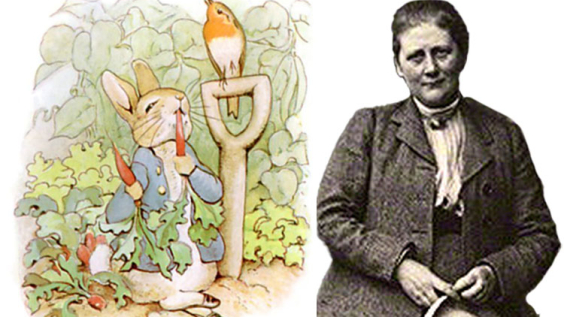
The Tale of Beatrix Potter: 10 Facts About The Iconic Illustrator & Children’s Author
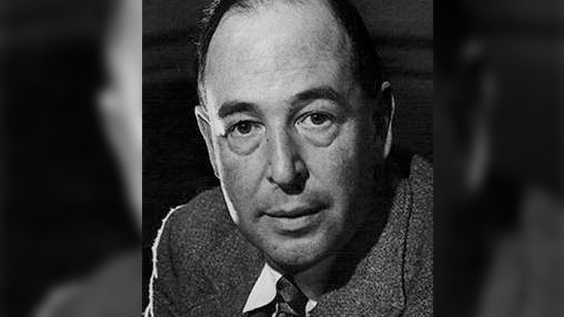
Beyond Narnia: The Enduring Legacy of C.S. Lewis
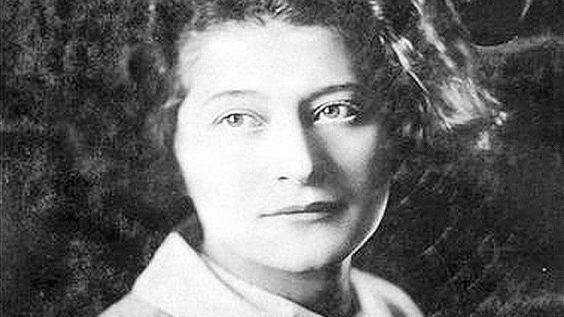
Margaret J. Winkler: A Forgotten Pioneer in Disney’s Success
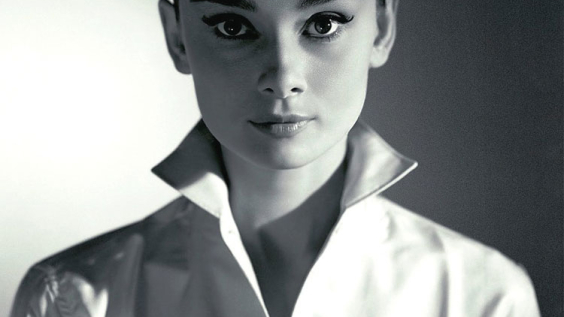
Audrey Hepburn: From War-Torn Childhood to Hollywood Icon
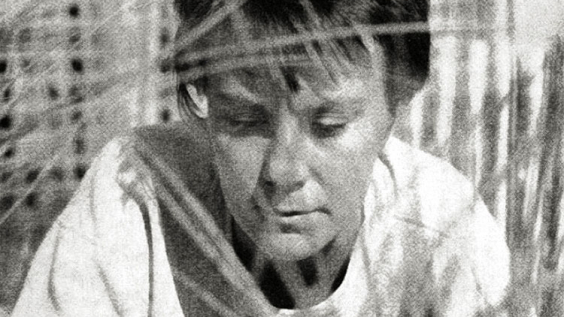
10 Facts About Harper Lee
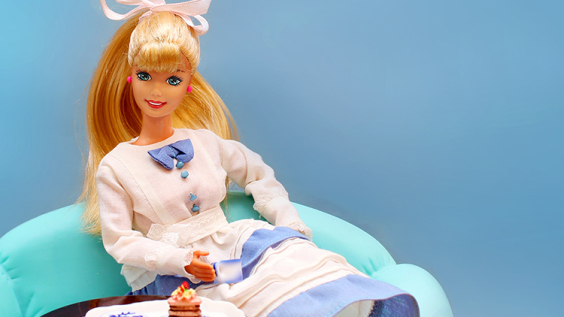
How Did Barbie Become an Icon?
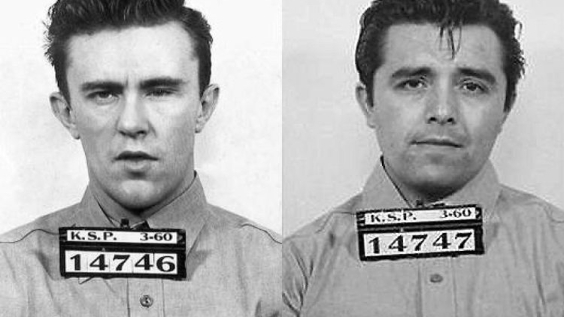
The Real Story Behind ‘In Cold Blood’: Truman Capote’s True Crime Masterpiece
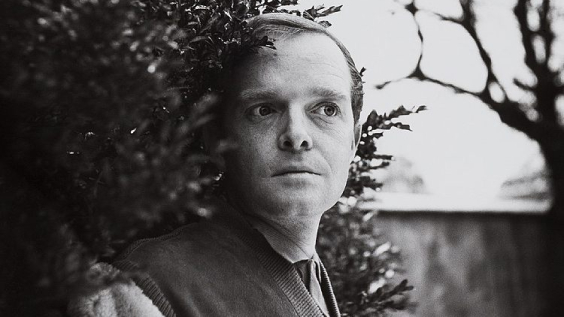
The Life and Times of Truman Capote: 10 Facts About the Literary Icon
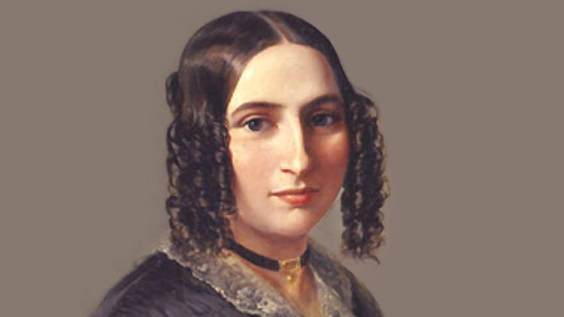
Fanny Mendelssohn: A Musical Prodigy and Forgotten Legacy
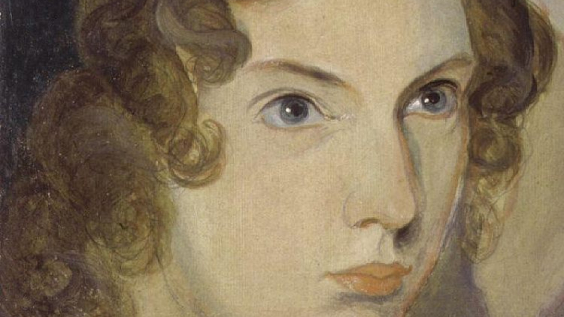
Anne Brontë: The Forgotten Sister Who Made a Mark on Victorian Literature
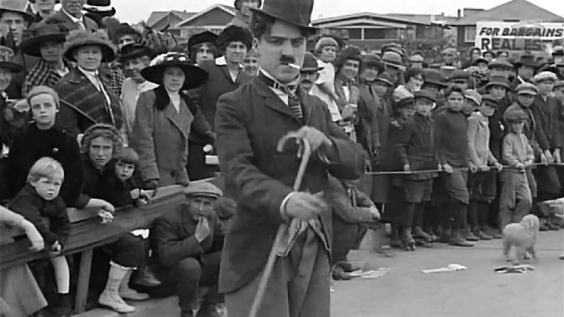
Why Was Charlie Chaplin Investigated by the FBI?
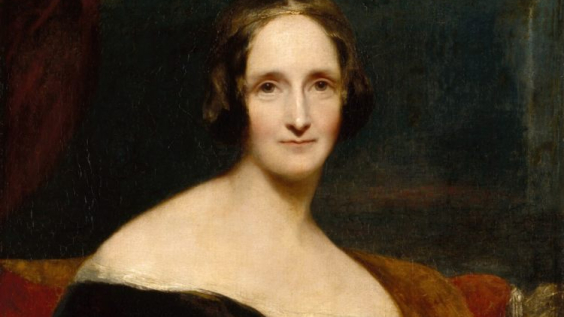
10 Facts About Mary Shelley: The Woman Behind Frankenstein
Mobile Menu
- Find a Tutor
- Connection User
- Edit Profile
- Forgot Password
- Novelguides by Title
- Reports & Essay by Title
- Quotes by Author
- Novelguides by Author
- Ask a Question
- Novelguides
- Connections
- Reports & Essays
- Ask Question
- Tutor's Market Place
- How it Works

What are You Studying?
Novelguide rooms, novelguide: search by author, novelguide: search by title, book navigation.
- The Great Gatsby: Novel Summary: Chapter 1
- The Great Gatsby: Novel Summary: Chapter 2
The Great Gatsby: Novel Summary: Chapter 3
- The Great Gatsby: Novel Summary: Chapter 4
- The Great Gatsby: Novel Summary: Chapter 5
- The Great Gatsby: Novel Summary: Chapter 6
- The Great Gatsby: Novel Summary: Chapter 7
- The Great Gatsby: Novel Summary: Chapter 8
- The Great Gatsby: Novel Summary: Chapter 9
- The Great Gatsby: Character Profiles
- The Great Gatsby: Metaphor Analysis
- The Great Gatsby: Theme Analysis
- The Great Gatsby: Top Ten Quotes
In contrast to the previous chapter's "party," Chapter 3 opens with Nick attending one of Gatsby's extravagant soirees, which his next-door-neighbor had invited him to. As Nick watches the spectacle of wealth intensify -- as more and more uninvited guests arrive -- he runs into Jordan Baker, the other guest from Nick's original visit to the Buchanans' house. Conversation centers around gossip about the absent Gatsby -- that he killed a man, that he was a German spy during WWI, that he served in the American army.
Around midnight, the "hilarity had increased," and Nick speaks with a man near his own age, who recognizes Carraway's face -- turns out they had been in the same division during the war. Eventually, to his embarrassment, Nick discovers he is actually conversing with his host, Jay Gatsby. When Gatsby leaves, Nick finds himself intrigued by his new acquaintance, and asks Jordan about his history. The mystery surrounding Gatsby deepens as Jordan responds, "Well, -- he told me once he was an Oxford man....However, I don't believe it" (53).
Jordan Baker, at her host's request, goes off to speak with Gatsby alone, leaving Nick to wander through the party stragglers around 2 a.m. When Jordan returns she tells Carraway, "I've just heard the most amazing thing," (57) but teases him by saying she promised not to tell. The chapter concludes as Nick walks across the lawn towards his house -- away from a chaotic scene where a car with one wheel ripped off has landed in a ditch in front of Gatsby's -- thinking of Jordan Baker. Nick reveals, "I wasn't actually in love, but I felt a sort of tender curiosity" (62). Although he finds Jordan dishonest and careless, Nick begins to fall for her anyway.
- Facebook share
Top Novelguides
Quotes by topic, report & essay.
- Thomas Jefferson: the Man, the Myth, and the Morality
- JFK: His Life and Legacy
- Gerald Ford
- Harry Shippe Truman
- Herbert Hoover
- The Presidency of FDR
- J.F.K. Biography
- James Madison
Popular Novelguides
- To Kill A Mockingbird Discuss & QA
- The Great Gatsby Discuss & QA
- Lord of the Flies Discuss & QA
- Adventures of Huck Finn Discuss & QA
- The Catcher in the Rye Discuss & QA
- Animal Farm Discuss & QA
- 1984 Discuss & QA
- Fahrenheit 451 Discuss & QA
- Odysseus Discuss & QA
- Great Expectations Discuss & QA
William Shakespeare Novels
Quotes: search by author, search reports and essays.
Novelguide.com is the premier free source for literary analysis on the web. We provide an educational supplement for better understanding of classic and contemporary literature. Novelguide.com is continually in the process of adding more books to the website each week. Please check back weekly to see what we have added. Please let us know if you have any suggestions or comments or would like any additional information. Thanks for checking out our website. More Details
Our Networks
- novelguide.com
- studyhall.novelguide.com
- Homework Help
- flashcard.novelguide.com/
- video.novelguide.com
- Share Report & Essay
- Join a school
- Join a teacher group
- Test Prep Material
Useful Links
- See what's new on our blog
- All Question
- Novelguide Authors
- Search Your School
- Teacher ratings

The Great Gatsby
F. scott fitzgerald, everything you need for every book you read..
In the summer of 1922, Nick Carraway moves from Minnesota to work as a bond salesman in New York. Nick rents a house in West Egg, a suburb of New York on Long Island full of the "new rich" who have made their fortunes too recently to have built strong social connections. Nick graduated from Yale and has connections in East Egg, a town where the people with social connections and "old" money live. One night Nick drives to East Egg to have dinner with his cousin, Daisy and her husband Tom Buchanan , a classmate of Nick's at Yale. There, he meets Jordan Baker , a beautiful and cynical professional golfer. Jordan tells Nick that Tom is having an affair. Upon returning home from dinner, Nick sees his mysterious neighbor Jay Gatsby holding out his arms toward the Long Island Sound. Nick looks out across the water, but sees only a green light blinking at the end of a dock on the far shore.
A few days later, Tom invites Nick to a party in New York City. On the way, Tom picks up his mistress, Myrtle Wilson , the wife of George Wilson , the owner of an auto shop an industrial area between West Egg and New York City called the Valley of Ashes . At the party, Myrtle gets drunk and makes fun of Daisy. Tom punches her and breaks her nose.
Nick also attends one of Gatsby's extravagant Saturday night parties. He runs into Jordan there, and meets Gatsby for the first time. Gatsby privately tells Jordan a story she describes as the most "amazing thing." After going to lunch with Gatsby and a shady business partner of Gatsby's named Meyer Wolfsheim , Nick meets with Jordan and learns the "amazing" story: Gatsby met and fell in love with Daisy before World War I, and bought his West Egg mansion just to be near her and impress her. At Gatsby's request, Nick arranges a meeting between Gatsby and Daisy. The two soon rediscover their love.
Daisy invites Nick and Gatsby to lunch with her, Tom, and Jordan. During the lunch, Tom realizes Daisy and Gatsby are having an affair. He insists they all go to New York City. As soon as they gather at the Plaza Hotel, though, Tom and Gatsby get into an argument about Daisy. Gatsby tells Tom that Daisy never loved Tom and has only ever loved him. But Daisy can only admit that she loved them both, and Gatsby is stunned. Tom then reveals that Gatsby made his fortune by bootlegging alcohol and other illegal means. Tom then dismissively tells Daisy to go home with Gatsby, since he knows Gatsby won't "bother" her anymore. They leave in Gatsby's car, while Tom, Nick, and Jordan follow sometime later.
As they drive home, Tom, Nick, and Jordan come upon an accident: Myrtle has been hit and killed by a car. Tom realizes that it must have been Gatsby's car that struck Myrtle, and he curses Gatsby as a coward for driving off. But Nick learns from Gatsby later that night that Daisy was actually behind the wheel.
George Wilson, distraught, is convinced that the driver of the car yellow car that hit Myrtle is also her lover. While at work that day, Nick fights on the phone with Jordan. In the afternoon, Nick has a kind of premonition and finds Gatsby shot to death in his pool. Wilson's dead body is a few yards away. Nick organizes a funeral, but none of the people who were supposedly Gatsby's friends come. Only Gatsby's father and one other man attend.
Nick and Jordan end their relationship. Nick runs into Tom soon after, and learns that Tom told Wilson that Gatsby had run over Myrtle. Nick doesn't tell Tom that Daisy was at the wheel. Disgusted with the corrupt emptiness of life on the East Coast, Nick moves back to Minnesota. But the night before he leaves he walks down to Gatsby's beach and looks out over Long Island Sound. He thinks about Gatsby, and compares him to the first settlers to America. Like Gatsby, Nick says, all people must move forward with their arms outstretched toward the future, like boats traveling upstream against the current of the past.

JavaScript seems to be disabled in your browser. For the best experience on our site, be sure to turn on Javascript in your browser.
- Introduction
- Summary Main
- Themes Main
- Society and Class
- The American Dream
- Memory and the Past
- Dissatisfaction
- Lies and Deceit
- Compassion and Forgiveness
- Characters Main
- Nick Carraway
- Daisy Buchanan
- Tom Buchanan
- Jordan Baker
- George Wilson
- Myrtle Wilson
- Meyer Wolfsheim
- Owl Eyes and Klipspringer
- Analysis Main
- What’s Up With the Title?
- What's Up With the Ending?
- What’s Up With the Epigraph?
- Tough-o-Meter
- Writing Style
- Gatsby's Books
- The Owl-Eyed Man
- T. J. Eckleburg
- The Green Light
- Narrator Point of View
- Booker's Seven Basic Plots Analysis
- Plot Analysis
- Three Act Plot Analysis
- Quotes Main
- For Teachers
The Great Gatsby by F. Scott Fitzgerald: Chapter 3 Summary
By f. scott fitzgerald.

- Nick describes the elaborate parties (orchestra and everything) that Jay Gatsby throws most nights throughout the summer. Hordes of people arrive to get their collective grooves on.
- Many of them never meet Gatsby, and most were not invited.
- But Nick is invited--via Gatsby's chauffer.
- He meets Jordan at the party, we're reminded she is a golfer, and everybody gossips about the mysterious Gatsby and how he might be a murderer or in the CIA or something.
- (Well, probably not the CIA, founded in 1947 . But you get the point.)
- Nick wanders into the library (you can tell he's not a big party aficionado) and meets a man with owl-eyed spectacles who is in awe that all these books are real – pages and everything!
- Owl-eyed man also utters one of the famous Fitzgerald lines: "I've been drunk for about a week now, and I thought it might sober me up to sit in a library."
- Back outside, Nick meets an unknown man who gives him the old "you look familiar" line. They chat about having both been in the war ( WWI ).
- Turns out, the mysterious man is the mysterious Gatsby. Who'd have thought? Certainly not Nick, who expected Gatsby to be older than him. (Nick's about 30.)
- Gatsby leaves to take a phone call, and later sends his butler to get Jordan for a private chat.
- Inside the house, Nick watches a woman with red hair singing along to a piano and weeping black mascara tears.
- Everyone is fighting with his or her spouse. The men are mad because they're not being allowed to talk to the hot young things , and the women are mad because their husbands are trying to talk to the hot young things.
- Presumably the hot young things are enjoying themselves just fine.
- Jordan comes back from the chat with Gatsby; she taunts Nick (and us) about the "tantalizing" news without revealing any of it. She then tells Nick to come and visit her at her aunt's house.
- Gatsby says goodnight to Nick with his signature "old sport" usage. They have plans to go up in his "hydroplane" tomorrow.
- BUT the excitement isn't over yet. Nick sees that a coupe leaving the driveway has hit a wall and lost a wheel.
- The driver? None other than the owl-eyed man himself.
- No, wait – moments after that we find out he was not, in fact, the driver. There was someone else in the car. We suggest you dog-ear this page for later reference.
- That's it for the night of the party.
- Nick falls into his work-eat-sleep routine and Jordan doesn't pop up again until mid-summer, when they start hanging out together.
- Nick tells us it isn't love, but that it's curiosity.
- Sure, dude. Whatever you need to tell yourself.
- When Jordan lies about leaving the top down in a borrowed convertible, it jogs Nick's memory about that "story" he had been trying to remember regarding Jordan: she may have cheated in a professional golf tournament once.
- Yet another classic Fitzgerald line: "Dishonesty in a woman is something you never blame deeply." Ha.
- She's also a horrible driver, but we're not making any women jokes about that—especially since it's not true .
- Nick tells her to be careful, but Jordan says no, it's fine, as long as other people are careful drivers. She says she hopes that she never meets a person as careless as herself. "I hate careless people," she tells Nick. "That's why I like you."
- Nick is sold. He realizes he needs to break things off with a certain girl back in Chicago, and then congratulates himself on being one of the few honest people he has ever known.
This is a premium product
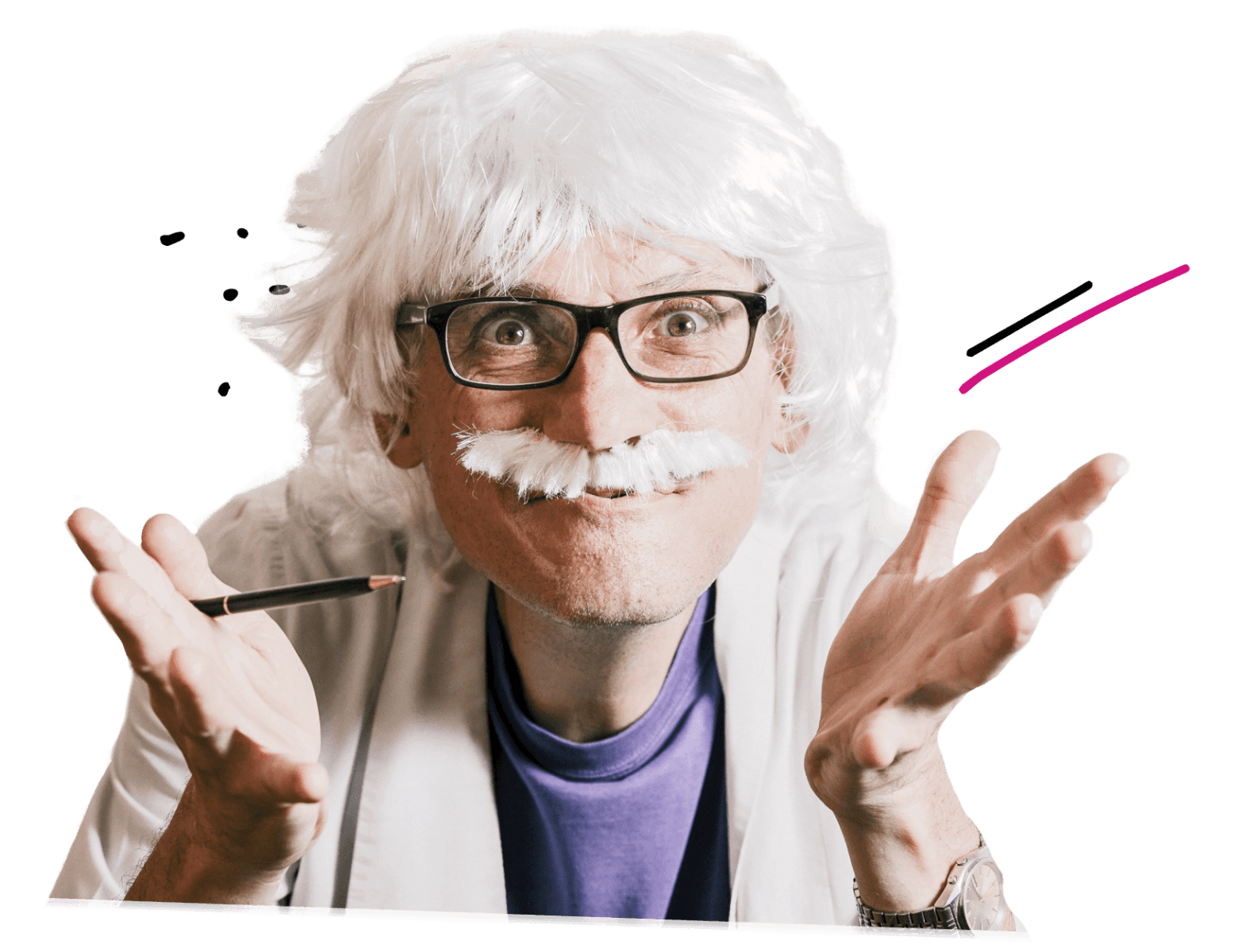
Tired of ads?
Join today and never see them again.
Please Wait...

COMMENTS
A summary of Chapter 3 in F. Scott Fitzgerald's The Great Gatsby. Learn exactly what happened in this chapter, scene, or section of The Great Gatsby and what it means. Perfect for acing essays, tests, and quizzes, as well as for writing lesson plans.
Every Saturday night, Gatsby throws incredibly luxurious parties at his mansion. Nick eventually receives an invitation. At the party, he feels out of place, and notes that the party is filled with people who haven't been invited and who appear "agonizingly" aware of the "easy money" surrounding them. The main topic of conversation is rumors ...
The Great Gatsby: Chapter 3 Summary. Nick describes watching endless parties going on in Gatsby's house every weekend. Guests party day and night and then on Mondays servants clean up the mess. Everything is about excess and a sense of overkill. Each weekend, guests are ferried back and forth to Manhattan by Rolls-Royce, crates of oranges and ...
Nick notes that Gatsby often flashes charming smiles and calls everyone "old sport". Nick is intrigued by Gatsby because he stands back from the festivities, seeming to take pleasure in watching, rather than joining in. At around two in the morning, a butler comes to Jordan and asks her to go meet Gatsby. When she comes back to Nick, Jordan ...
The man himself stands in stark contrast to the sinister gossip Nick has heard about him. Gatsby is young and handsome, with a beautiful smile that seems to radiate hope and optimism. Nick falls instantly in love with Gatsby's smile, remarking that it has "a quality of eternal reassurance in it." Gatsby's innate hopefulness is contagious.
Chapter 3 Summary and Analysis. PDF Cite. Summer in West Egg is a series of parties for Nick, and perhaps the best of all is one Gatsby invites him to at the beginning of this chapter. Nick has ...
🔬 The Great Gatsby: Analysis of Chapter 3. At the beginning of The Great Gatsby's Chapter 3 summary, the description of the extravagant party seems like the American Dream itself coming to real life.From the previous chapters, it should be clear that "new rich" and "old rich" are on bad terms.
Summary and Analysis Chapter 3. Summary. Nick's attentions again turn to Gatsby in Chapter 3. Gatsby, in the summer months, was known far and wide for the extravagant parties he threw in which "men and girls came and went like moths among the whisperings and the champagne and the stars." During the weekend, people flocked to his house for his ...
Chapter 3 Summary. Gatsby holds regular parties that feature huge banquets, music, and hundreds of people who come and go as they please. Nick goes on to describe his own first appearance at one of Gatsby's parties. He notes with amusement that he attended in response to a very formal invitation, delivered by a chauffeur.
Chapter 3: Summary. This chapter focuses on Gatsby. In the summer months, Gatsby throws extravagant parties in which "men and girls came and went like moths among the whisperings and the champagne and the stars.". His parties make him popular in New York. Gatsby's chauffeur shows up at Nick's and invites him to a party.
Chapter 3 Summary. Nick describes Gatsby's lavish and famous summer parties that are widely-attended, fully catered and frequently feature a whole orchestra. One day, Nick is invited to attend a party via a handwritten note from Gatsby. He is one of the few that has actually been invited; most of the guests simply arrive.
The Great Gatsby Chapter 3 Summary. Back. More. (Click the summary infographic to download.) Nick describes the elaborate parties (orchestra and everything) that Jay Gatsby throws most nights throughout the summer. Hordes of people arrive to get their collective grooves on. Many of them never meet Gatsby, and most were not invited.
When Gatsby is called away, Jordan begins to speculate about who Gatsby really is and joins the others in sharing rumors about him. Breaking into present tense, Nick makes it clear that he didn't waste his entire summer partying. He worked hard in New York and dated a few women, but by midsummer he begins dating Jordan more seriously.
The Great Gatsby Chapter 3 is the first introduction to the character the book is named after, Jay Gatsby. The Great Gatsby Chapter 3 summary includes a look at the difference between Gatsby's ...
Summarize videos instantly with our Course Assistant plugin, and enjoy AI-generated quizzes: https://bit.ly/ch-ai-asst The Great Gatsy chapter summary in und...
Here is a summary and analysis of The Great Gatsby, Chapter 3.Yet Gatsby's party is starkly different from the other two. First, Nick is the only guest who s...
The Great Gatsby. The Great Gatsby: Novel Summary: Chapter 3. Chapter 3. In contrast to the previous chapter's "party," Chapter 3 opens with Nick attending one of Gatsby's extravagant soirees, which his next-door-neighbor had invited him to. As Nick watches the spectacle of wealth intensify -- as more and more uninvited guests arrive -- he runs ...
The Great Gatsby Summary. In the summer of 1922, Nick Carraway moves from Minnesota to work as a bond salesman in New York. Nick rents a house in West Egg, a suburb of New York on Long Island full of the "new rich" who have made their fortunes too recently to have built strong social connections. Nick graduated from Yale and has connections in ...
Presumably the hot young things are enjoying themselves just fine. Jordan comes back from the chat with Gatsby; she taunts Nick (and us) about the "tantalizing" news without revealing any of it. She then tells Nick to come and visit her at her aunt's house. Gatsby says goodnight to Nick with his signature "old sport" usage.
The Great Gatsby (Chapter III) Lyrics. There was music from my neighbor's house through the summer nights. In his blue gardens men and girls came and went like moths among the whisperings and ...
Chapter III. There was music from my neighbor's house through the summer nights. In his blue gardens men and girls came and went like moths among the whisperings and the champagne and the stars. At high tide in the afternoon I watched his guests diving from the tower of his raft, or taking the sun on the hot sand of his beach while his two ...
Apr 14, 2020 - Tackle Chapter 3 of F. Scott Fitzgerald's American classic The Great Gatsby with these activities that will challenge your students to go beyond comprehension and into critical thinking.This resource gets you two separate activities - in both PRINT and DIGITAL versions -for Chapter 3:-Analysis of Fi...